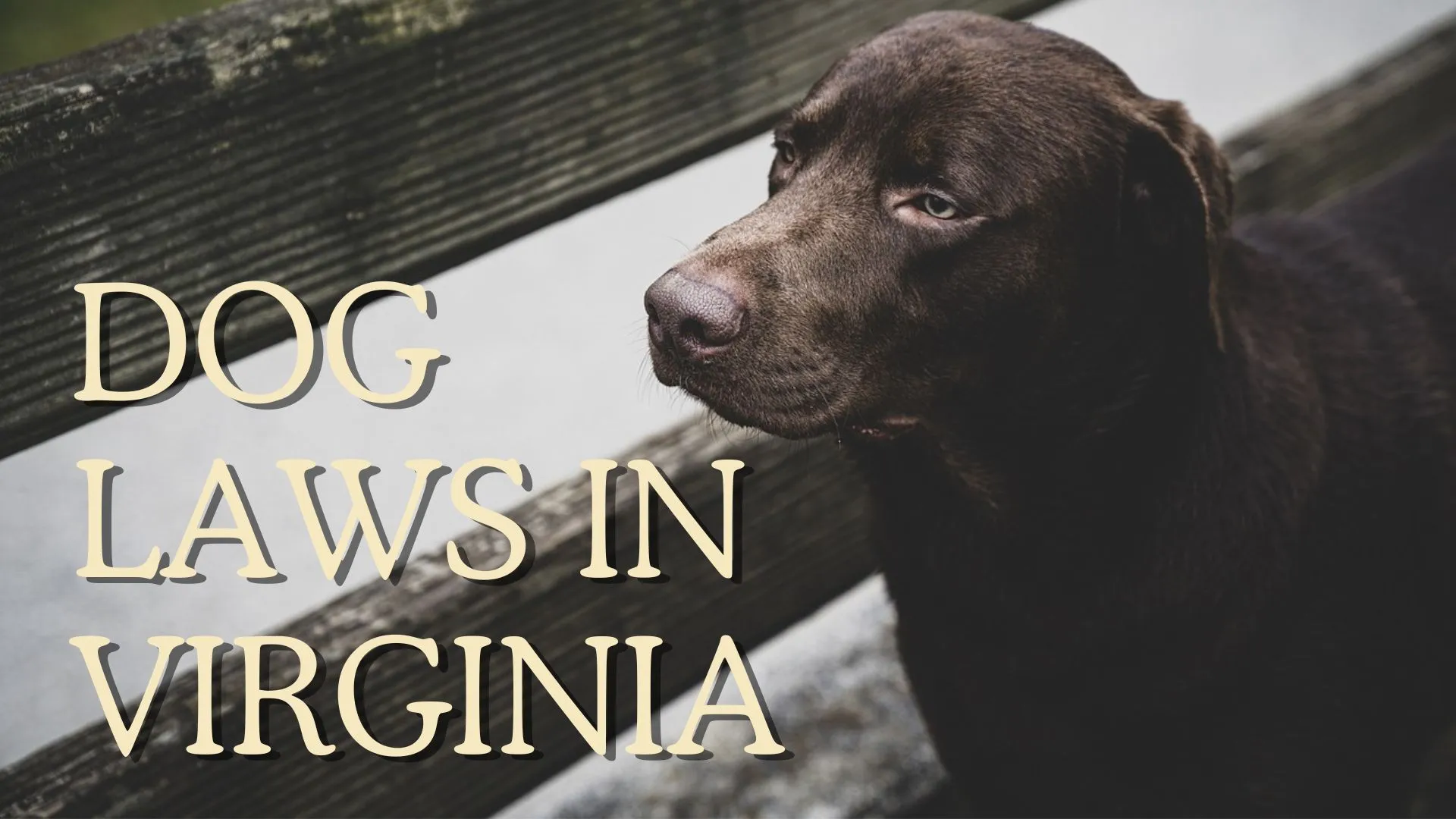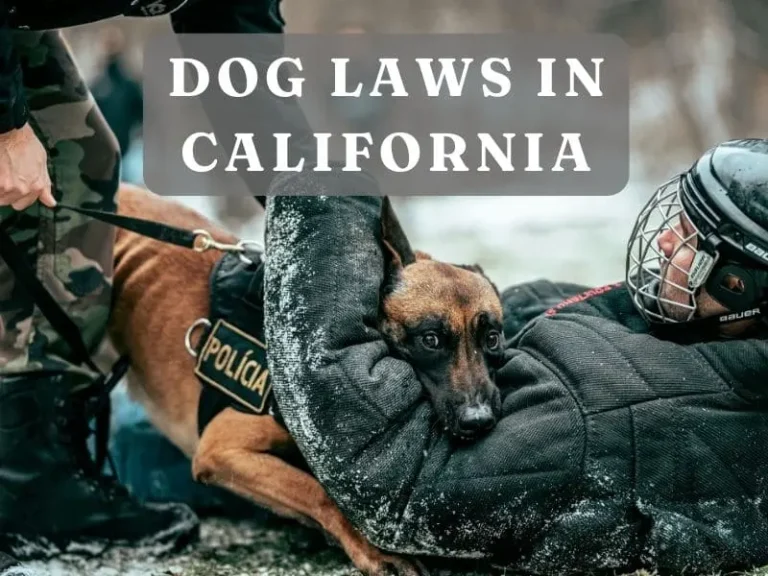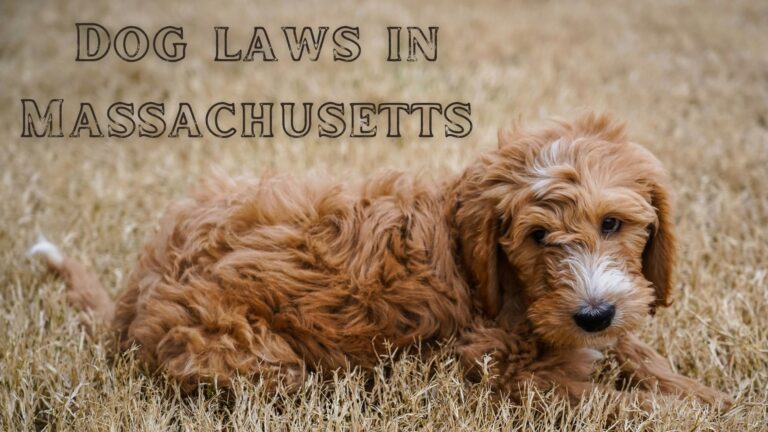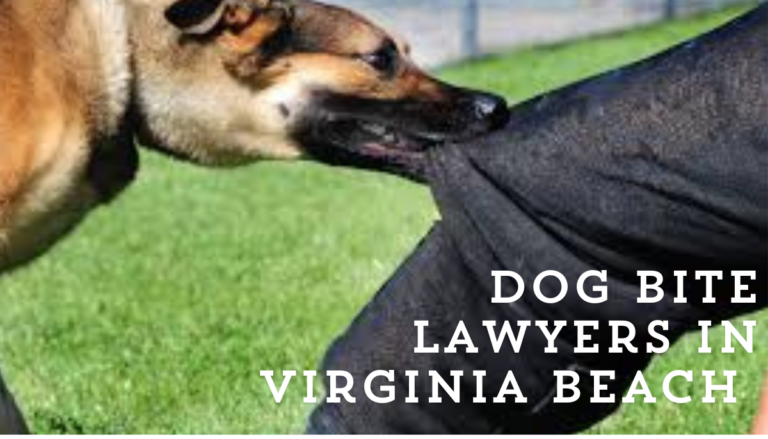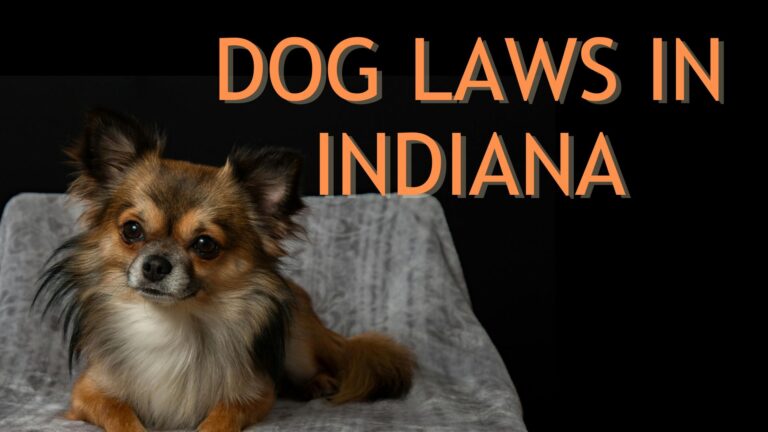Dog Laws in Virginia
As a dog lover living in the US, where an estimated 69 million households have a canine companion, understanding dog laws is crucial. These laws aren’t just about keeping your furry friend safe; they ensure a harmonious environment for everyone in our communities.
Navigating dog laws in the US can feel complex, as regulations vary from state to state, and even city to city. Here in Vermont, I’ll delve into the legalities surrounding dog ownership, exploring leash laws, licensing, responsible care, and some exciting new advancements in dog technology – all to ensure a happy and fulfilling life for both you and your canine companion in the Green Mountain State.
Table of Contents
Dog Bite Laws in Virginia
Virginia, a state steeped in history and renowned for its natural beauty, is also home to a large population of dog lovers. With an estimated 2.2 million canine companions residing in the state, ensuring responsible dog ownership and addressing potential conflicts is crucial. This comprehensive guide explores dog bite laws in Virginia, empowering dog owners and bite victims to understand their rights and responsibilities.
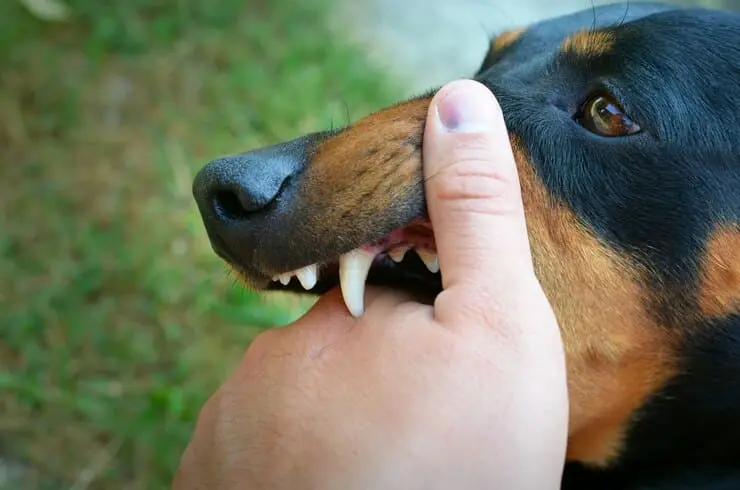
The Importance of Dog Bite Laws
Dog bites are a surprisingly common occurrence in the United States. According to the Centers for Disease Control and Prevention (CDC), nearly 4.5 million dog bites occur annually, with many resulting in serious injuries. Dog bite laws aim to:
- Protect Public Safety: By outlining regulations for dog ownership, these laws aim to minimize the risk of dog bites and promote responsible pet care.
- Ensure Compensation for Victims: Dog bite laws establish a legal framework for victims to seek compensation for medical expenses, lost wages, and other damages resulting from a dog bite.
- Hold Owners Accountable: These laws promote responsible ownership by holding dog owners accountable for their pet’s behavior.
Virginia’s Dog Bite Laws
Virginia’s dog bite laws differ from the strict liability standard employed in some states. Here’s a breakdown of key aspects:
- One-Bite Rule: Virginia follows a “one-bite rule,” which means a dog owner is generally not liable for the first bite inflicted by their dog unless they knew or should have known the dog was vicious.
- Negligence Standard: To establish liability for subsequent bites or the first bite if the owner knew of the dog’s vicious tendencies, the victim must prove negligence on the part of the owner.
- This negligence could involve failing to properly restrain the dog, not providing adequate training, or creating a situation where a bite was foreseeable.
Key Factors Influencing Liability in Dog Bite Cases
Several factors can influence the outcome of a dog bite case in Virginia:
- Prior Bites: If a dog has a history of biting or aggressive behavior, the owner might be held liable even for the first bite.
- Breed: While Virginia doesn’t have breed-specific bans, certain breeds might be considered inherently more dangerous, potentially impacting liability assessments.
- Severity of Injuries: The seriousness of the injuries sustained by the bite victim can influence the compensation awarded.
- Provocation: If the victim provoked the dog, it might impact their ability to recover damages.
Additional Considerations
While the “one-bite rule” is a central tenet of Virginia’s dog bite laws, there are additional considerations:
- Leash Laws: Most Virginia localities have leash laws mandating dogs to be leashed in public spaces. Failing to leash your dog could be considered negligence in the event of a bite.
- Dangerous Dog Laws: Some Virginia localities have ordinances classifying dogs with a history of aggression as “dangerous.” These ordinances typically require additional owner responsibility measures like muzzles, secure enclosures, and liability insurance.
- Animal Cruelty Laws: Virginia has animal cruelty statutes prohibiting owners from neglecting or abusing their dogs.
What to Do After a Dog Bite
If you’re unfortunately bitten by a dog in Virginia, here are some crucial steps:
- Seek Medical Attention: Your primary concern should be receiving prompt medical attention for your injuries.
- Report the Bite: Report the bite to animal control and document the incident, including the location, time, and any witnesses.
- Consult an Attorney: An experienced personal injury attorney can advise you of your rights and options for pursuing compensation.
Preventing Dog Bites
Dog bites are often preventable. Here’s how both dog owners and the public can contribute:
- Responsible Dog Ownership: Owners should properly train their dogs, socialize them from a young age, and ensure they are adequately restrained in public spaces.
- Understanding Dog Behavior: Learning to recognize canine body language and avoiding situations that might trigger aggression can help minimize the risk of bites.
- Parental Supervision: Parents should closely supervise children around dogs, especially unfamiliar ones, to prevent potential bites.
Dog Barking and Noise Laws in Virginia
Virginia, a state rich in history and natural beauty, boasts a vibrant pet culture. With an estimated 2.2 million canine companions gracing its landscapes, ensuring peaceful coexistence for both humans and their furry friends is crucial. One potential source of disruption – dog barking – is addressed through noise ordinances enacted at the state and local levels. This comprehensive guide explores dog barking and noise laws in Virginia, empowering dog owners and community members to navigate these regulations and promote a harmonious environment.

The Impact of Excessive Dog Barking
While barking is a natural form of canine communication, excessive barking can be disruptive and a source of frustration for neighbors. Potential consequences of excessive dog barking include:
- Disturbance to Neighbors: Constant barking can disrupt sleep patterns, work from home environments, and overall peace and quiet within a community.
- Strained Relationships: Unresolved barking issues can lead to neighborly disputes and create tension within communities.
- Potential Animal Control Intervention: Persistent barking violations could result in fines or even animal control intervention depending on the severity and the specific locality’s ordinances.
Virginia’s Noise Ordinances
Virginia doesn’t have a statewide law specifically addressing dog barking. However, most localities throughout the state have enacted noise ordinances that encompass animal noise, including barking dogs. These ordinances vary by locality, but they typically share some common elements:
- Specific Decibel Limits: Some ordinances might establish decibel limits for acceptable noise levels, including barking.
- Time Restrictions: Many ordinances restrict excessive noise, including barking, during specific nighttime hours.
- Duration and Frequency: Ordinances often define what constitutes “excessive” barking, considering factors like duration and frequency of vocalization.
Key Considerations When Addressing Dog Barking Complaints
If you’re concerned about excessive barking from a neighbor’s dog, here are some steps to consider:
- Communicate with Your Neighbor: A friendly and respectful conversation with your neighbor might be the most effective first step. Explain the disruption caused by the barking and explore potential solutions together.
- Document the Issue: If communication doesn’t resolve the issue, keep a record of the barking incidents, including the date, time, and duration. You might also consider recording the barking to provide evidence.
- Contact Local Authorities: If attempts at communication fail, contact your local animal control department to report the barking violation. They can investigate the situation and potentially issue warnings or fines to the dog owner.
Additional Considerations
Beyond legal requirements, responsible dog ownership practices can minimize excessive barking:
- Identify the Cause: Understanding the reason behind your dog’s barking is crucial for addressing the behavior. Common triggers include boredom, separation anxiety, or unfamiliar sounds.
- Positive Reinforcement Training: Positive reinforcement training methods can significantly reduce unwanted behaviors like excessive barking.
- Providing Enrichment: Ensuring your dog receives adequate exercise, mental stimulation, and proper socialization can reduce boredom and separation anxiety, which can contribute to barking.
Finding Solutions Together
Creating a community where both dogs and humans thrive requires a collaborative effort. Here are some ways to foster a more peaceful environment:
- Dog Parks and Off-Leash Areas: Utilize designated dog parks and off-leash areas to provide your dog with safe spaces for exercise and socialization.
- Community Outreach: Consider organizing community events or workshops focused on responsible dog ownership and addressing common pet-related concerns like barking.
- Advocacy for Reasonable Regulations: Get involved in local discussions and advocate for noise ordinances that are balanced, addressing community concerns while acknowledging the natural vocalizations of dogs.
Dog Poop Disposal Laws in Virginia
Virginia, a state renowned for its historical charm and scenic landscapes, is also home to a vibrant dog-loving community. With an estimated 2.2 million canine companions gracing Virginia’s streets and parks, responsible pet ownership is paramount. One crucial aspect is proper dog waste disposal, not just for aesthetics but also for environmental and public health reasons.
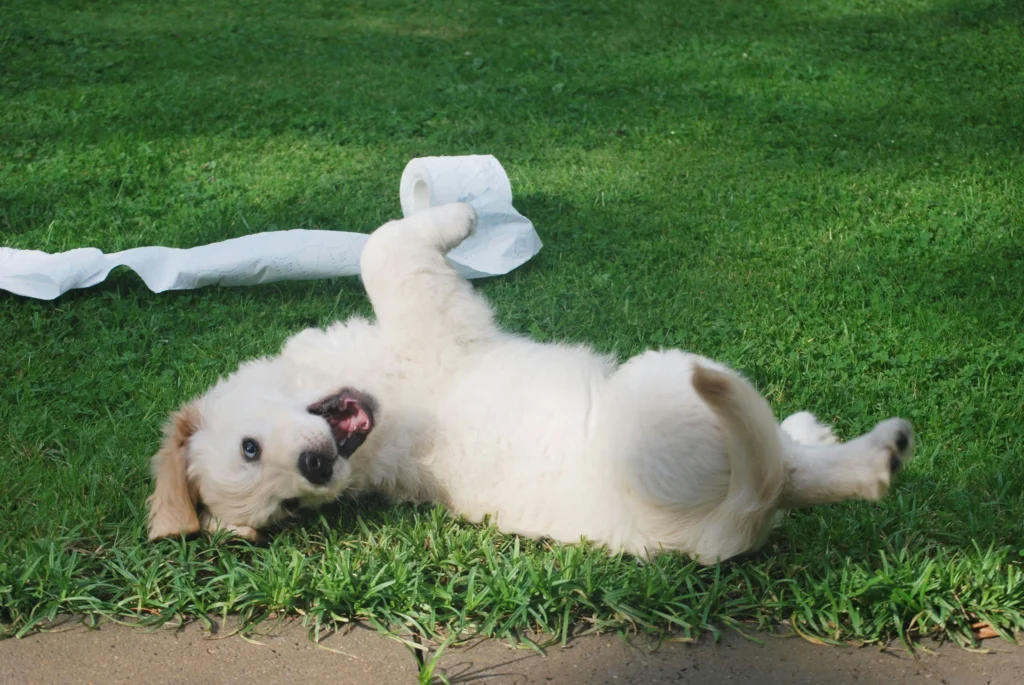
The Importance of Responsible Dog Waste Disposal
Dog waste, while seemingly insignificant, can pose significant environmental and health risks if not disposed of properly. Here’s why responsible disposal matters:
- Protecting Waterways: Left on the ground, dog waste can be washed away by rain, carrying harmful bacteria and parasites into streams, rivers, and ultimately, our drinking water sources.
- Promoting Public Health: Dog waste can harbor harmful pathogens like bacteria and parasites that can pose health risks to humans, especially children.
- Maintaining a Pleasant Environment: Dog waste detracts from the beauty of our communities and parks. Responsible disposal ensures a clean and enjoyable environment for everyone.
Dog Poop Disposal Laws
Virginia doesn’t have a single, statewide law mandating dog waste disposal. However, most localities throughout the state have enacted ordinances requiring dog owners to pick up and dispose of their pet’s waste. These ordinances vary by locality but typically share some common elements:
- Pick-Up Requirement: Dog owners are legally obligated to pick up their dog’s waste in all public spaces, including sidewalks, parks, and trails.
- Fines for Non-Compliance: Failing to pick up your dog’s waste can result in fines, with the amount varying depending on the specific locality.
- Designated Waste Disposal Areas: Some localities might provide designated dog waste disposal areas with bins or bags to facilitate responsible disposal.
Local Dog Poop Disposal Laws
With dog waste disposal laws enacted at the local level, here’s how to find specific regulations in your area:
- Visit Your Local Government Website: Most municipal or county government websites have resources detailing local ordinances, including those related to animal control and dog waste disposal.
- Contact Your Local Animal Control Department: Your local animal control department can provide information on specific dog waste disposal regulations and answer any questions you might have.
Responsible Dog Waste Disposal
Responsible dog ownership goes beyond adhering to legal mandates. Here are some best practices for dog waste disposal:
- Always Carry Waste Bags: Develop the habit of always carrying poop bags on walks, ensuring you’re prepared to dispose of your dog’s waste properly.
- Double Bagging: Consider double bagging waste for additional security and odor control.
- Dispose of Waste in Trash Cans: Look for designated trash cans in parks or dispose of waste in tightly sealed bags in your own trash can at home.
- Leave No Trace: Never leave dog waste bags behind on trails, parks, or sidewalks.
- Advocate for Designated Disposal Areas: If your community lacks designated dog waste disposal areas with bins or bags, consider advocating for their implementation with local authorities.
The Benefits of Responsible Dog Waste Disposal
By following responsible dog waste disposal practices, you contribute to a healthier and more enjoyable environment for everyone:
- Protecting Public Health: Proper disposal minimizes the risk of disease transmission from harmful pathogens in dog waste.
- Safeguarding Waterways: Responsible pet owners help protect our water sources by preventing contamination from dog waste.
- Preserving Natural Beauty: Clean parks and public spaces create a more pleasant experience for everyone, fostering community enjoyment and appreciation for Virginia’s natural beauty.
Dog Licensing Laws in Virginia
Virginia, a state steeped in history and renowned for its scenic beauty, boasts a vibrant dog-loving community. With an estimated 2.2 million canine companions gracing Virginia’s landscapes, ensuring responsible ownership is crucial. A fundamental aspect of pet ownership in Virginia is dog licensing.

Why License Your Dog?
Dog licensing in Virginia goes beyond a simple registration process. Here are some key reasons to license your dog:
- Identification and Recovery: A dog license serves as an official form of identification for your canine companion. If your dog becomes lost, a license tag with your contact information significantly increases the chances of a safe and swift return.
- Rabies Control and Vaccination Verification: Dog licensing in Virginia is directly linked to rabies vaccination requirements. Licensing helps ensure your dog is current on rabies vaccinations, which are crucial for public health and preventing the spread of this deadly disease.
- Funding for Animal Shelters and Services: Revenue generated from dog licensing fees is often used to support animal control services, shelters, and other programs that benefit animal welfare in Virginia.
Dog Licensing Requirements
While dog licensing is mandatory throughout Virginia, the specific process and regulations might vary slightly by locality. Here’s a general overview:
- Age Requirement: All dogs four months of age or older must be licensed in Virginia.
- Licensing Period: Licenses are typically valid for one year, with renewal required annually. Some localities might offer multi-year licensing options.
- Licensing Fees: Fees vary by locality and might depend on factors like the dog’s age, sterilization status, and rabies vaccination status. Reduced fees are often available for neutered or spayed dogs and senior canines.
- Licensing Process: The process for obtaining a dog license can typically be completed through your local treasurer’s office, animal control department, or online platforms offered by some localities. Required documentation usually includes proof of current rabies vaccination.
Local Dog Licensing Requirements
To get specific details about dog licensing in your area, consider these resources:
- Visit Your Local Government Website: Most municipal or county government websites have resources detailing animal control ordinances, including those related to dog licensing.
- Contact Your Local Treasurer’s Office: The treasurer’s office is typically responsible for issuing dog licenses and can provide information on fees, renewal processes, and any required documentation.
- Check with Your Local Animal Control Department: Your local animal control department can also answer questions about dog licensing and potentially offer assistance with the process.
Benefits of Microchipping
While dog licensing offers significant benefits, consider microchipping your dog for an additional layer of security:
- Permanent Identification: A microchip implanted under your dog’s skin contains a unique identification number that can be linked to your contact information in a national database.
- Increased Recovery Rates: If your dog becomes lost and ends up at a shelter or veterinary clinic, a microchip scan can quickly reunite you with your furry friend, even if their license tag is missing.
Responsible Pet Ownership
Dog licensing is a crucial aspect of responsible pet ownership, but it’s just one piece of the puzzle. Here are some additional practices to ensure your dog thrives in Virginia:
- Proper Pet Care: Provide your dog with nutritious food, clean water, regular exercise, and veterinary care to ensure their physical and mental well-being.
- Training and Socialization: Invest time in training your dog to understand basic commands and social cues, contributing to a well-behaved and confident canine companion.
- Leash Laws and Public Space Etiquette: Respect leash laws in your area and clean up after your dog in public spaces, being a responsible steward within your community.
Fines and Penalties for Non-Compliance
Failure to license your dog in Virginia can result in fines and potential penalties. The specific amount can vary by locality but could range from minor fines to court appearances. In some cases, unlicensed dogs might be impounded by animal control.
Dog Leash Laws in Virginia
Virginia, a state brimming with historical charm and scenic landscapes, is home to a vibrant dog-loving community. With an estimated 2.2 million canine companions enjoying Virginia’s outdoors, ensuring responsible dog ownership is paramount. One crucial aspect of safety and community harmony is adhering to dog leash laws. T
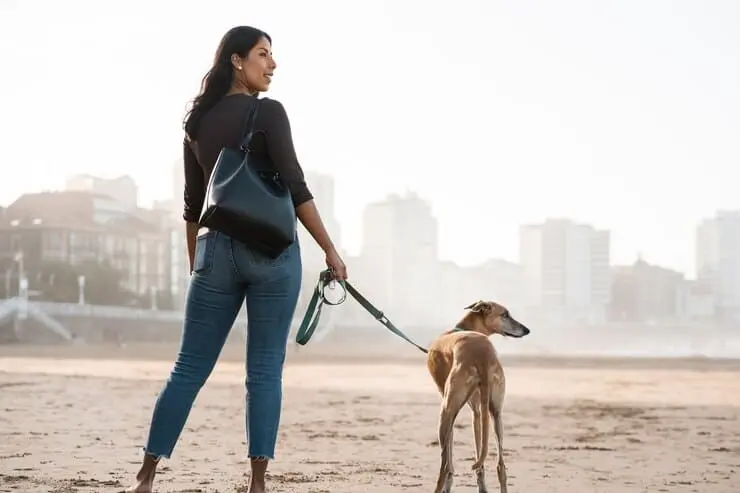
The Importance of Dog Leash Laws
Dog leash laws play a vital role in promoting safety and responsible pet ownership. Here’s why leash laws matter:
- Public Safety: Leashes help ensure control of your dog, minimizing the risk of bites, injuries, or altercations with other dogs or people.
- Pedestrian Comfort: Leashed dogs allow everyone to enjoy public spaces comfortably, respecting the personal space of others who might be afraid of dogs or simply prefer not to interact with them.
- Preventing Accidents: Leashes prevent dogs from running into traffic, chasing wildlife, or encountering other potential dangers in public areas.
- Protecting Your Dog: Leashes restrain your dog from potentially triggering conflicts with other canines or wildlife, promoting a safer environment for your furry friend.
Dog Leash Laws
While Virginia doesn’t have a single, statewide leash law, most localities throughout the state have enacted ordinances requiring dogs to be leashed in public spaces. These ordinances vary by locality, but they typically share some common elements:
- Leash Requirements: Dogs must be restrained on a leash of a specific length (often 6 feet) in public spaces, which can include sidewalks, parks, trails, and public areas.
- Off-Leash Areas: Some localities might designate specific areas, like dog parks, where leash laws are relaxed, allowing controlled off-leash socialization for dogs.
- Voice Control Exceptions: Some ordinances might allow for voice control exceptions in designated areas, permitting well-trained dogs to be off-leash under the owner’s immediate control.
Local Dog Leash Laws
With dog leash laws enacted at the local level, here’s how to find specific regulations in your area:
- Visit Your Local Government Website: Most municipal or county government websites have resources detailing animal control ordinances, including those related to dog leash laws.
- Contact Your Local Animal Control Department: Your local animal control department can provide information on specific leash laws and answer any questions you might have.
Responsible Dog Walking Practices
While adhering to leash laws is crucial, responsible dog walking practices go beyond legal mandates. Here are some additional tips:
- Choose the Right Leash: Select a leash of appropriate length and strength for your dog’s size and temperament.
- Maintain Control: Always maintain control of your dog while on a leash, ensuring they cannot pull you or lunge towards others.
- Clean Up After Your Dog: Be a responsible pet owner by carrying waste bags and picking up after your dog in public spaces.
- Respect Others: Be mindful of others using public spaces. Avoid letting your dog jump on people or block walkways.
- Off-Leash Considerations: If utilizing an off-leash area, ensure your dog has excellent recall and is well-socialized to interact safely with other canines.
The Benefits of Responsible Leash Use
Responsible leash use benefits everyone:
- Safety for All: Leashes promote a safe environment for both dogs and people using public spaces.
- Peaceful Coexistence: Responsible leash use minimizes disruptions and allows everyone to enjoy Virginia’s outdoor spaces comfortably.
- Strengthening the Bond: Training your dog to walk well on a leash strengthens your bond and promotes positive communication.
Fines and Penalties for Non-Compliance
Failure to comply with leash laws in Virginia can result in fines. The specific amount can vary by locality but could range from minor fines to court appearances. In some cases, unleashed dogs might be impounded by animal control.
Dangerous Dog Laws in Virginia
Virginia, a state steeped in history and renowned for its natural beauty, boasts a vibrant dog-loving community. With an estimated 2.2 million canine companions gracing Virginia’s landscapes, ensuring public safety and responsible ownership is crucial. While most dogs are loving companions, a small percentage might exhibit aggressive behavior, raising concerns about potential risks. Dangerous dog laws in Virginia address these concerns, outlining a framework for identifying, managing, and potentially rehabilitating dogs deemed dangerous.
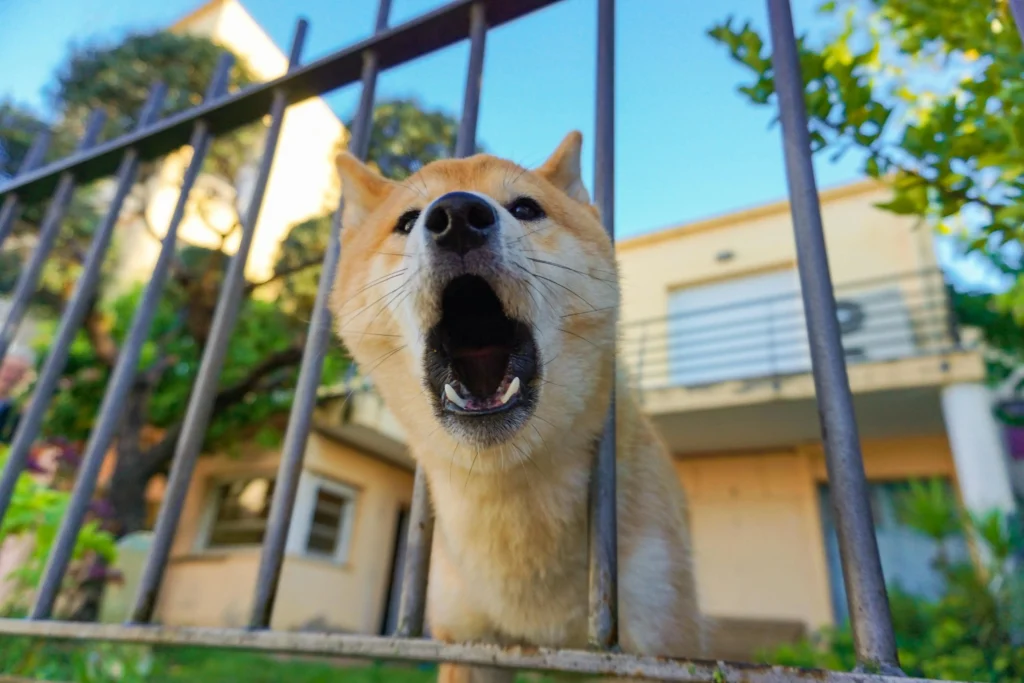
“Dangerous Dogs” in Virginia
Unlike some states with breed-specific bans, Virginia doesn’t classify dogs as dangerous based solely on breed. Instead, a dog is deemed dangerous based on its past behavior, as determined through a legal process. Here are some key factors that might contribute to a dog being classified as dangerous:
- History of Bites: A documented history of biting or attacking humans or other animals, particularly unprovoked attacks, is a significant factor.
- Severity of Injuries: The severity of injuries inflicted during a bite attack can influence the designation of a dangerous dog.
- Aggressive Behavior: Documented incidents of aggressive behavior, even without causing injury, might be considered in dangerous dog evaluations.
The Dangerous Dog Designation Process
The process of designating a dog as dangerous in Virginia typically involves the following steps:
- Incident Report: An incident involving a dog bite or aggressive behavior is reported to animal control.
- Investigation: Animal control officers investigate the incident, gathering evidence and witness statements.
- Hearing: A hearing might be held to assess the evidence and determine if the dog meets the criteria for being classified as dangerous.
- Court Order: If deemed dangerous, a court order will outline specific restrictions on the dog’s owner.
Restrictions for Owners of Dangerous Dogs
If your dog is classified as dangerous in Virginia, specific restrictions will likely be imposed, aiming to minimize potential risks and ensure responsible ownership. These restrictions might include:
- Muzzle Requirement: The dog might be required to wear a secure muzzle in public spaces.
- Leash and Enclosure Requirements: Strict leash laws with shorter leash lengths and secure enclosures at home might be mandated.
- Financial Responsibility: The owner might be held financially liable for any future injuries caused by the dog.
- Insurance Requirements: Liability insurance for the dangerous dog might be required.
- Training and Behavior Modification: The owner might be required to enroll the dog in training programs aimed at behavior modification.
Important Considerations for Dog Owners
As a responsible dog owner, here are some crucial points to consider:
- Understanding Early Warning Signs: Learn to recognize signs of potential aggression in your dog, such as growling, snarling, or stiff body posture.
- Socialization and Training: Properly socialize your dog from a young age and invest in obedience training to promote positive behavior and control.
- Preventative Measures: Take proactive steps to prevent potential incidents. This might involve avoiding triggers for your dog and keeping them leashed and under control in public spaces.
- Due Process: If your dog is involved in an incident and faces a dangerous dog designation hearing, exercise your right to legal representation.
The Role of Community Members
While dog owners have primary responsibility, community members also play a role:
- Responsible Interaction: Avoid approaching unfamiliar dogs without permission, especially those displaying signs of anxiety or aggression.
- Reporting Concerns: If you witness a dog attack or aggressive behavior, report the incident to animal control promptly.
- Educational Resources: Familiarize yourself with signs of canine aggression and responsible dog interaction practices.
Responsible Ownership
Dangerous dog laws are a crucial safety measure, but they are not a substitute for responsible ownership. Here are some key aspects to consider:
- Choosing the Right Dog: Research different breeds and find a dog that suits your lifestyle and ability to provide proper care and training.
- Spaying/Neutering: Spaying or neutering your dog can reduce aggressive tendencies in some cases.
- Veterinary Care: Regular veterinary checkups ensure your dog’s physical and mental health are addressed, potentially minimizing behavioral issues.
- Positive Reinforcement Training: Invest in positive reinforcement training methods to build a strong bond with your dog and promote positive behaviors.
Dog Health and Welfare Laws in Virginia
Virginia, a state rich in history and natural beauty, is home to an estimated 2.2 million cherished canine companions. Ensuring the health and welfare of these furry friends is paramount for responsible pet ownership and a thriving animal community. While Virginia doesn’t have a single, all-encompassing dog health and welfare law, several regulations and animal cruelty statutes play a crucial role in protecting dogs.

The Importance of Dog Health and Welfare Laws
Dog health and welfare laws serve a vital purpose:
- Preventing Animal Cruelty: These laws establish minimum standards of care, prohibiting owners from neglecting, abusing, or inflicting unnecessary suffering on their dogs.
- Ensuring Basic Needs are Met: Animal welfare laws aim to guarantee dogs have access to essential needs like adequate food, clean water, proper shelter, and necessary veterinary care.
- Promoting Responsible Ownership: These legal frameworks encourage owners to prioritize their dog’s health and well-being, fostering a positive human-animal bond.
Key Virginia Statutes
While there isn’t a single, overarching dog health and welfare law, several key Virginia statutes contribute to animal protection:
- Comprehensive Animal Care Laws (Code of Virginia § 3.2-6500 et seq.): This chapter outlines animal cruelty definitions and establishes penalties for violations. It emphasizes providing adequate food, water, exercise, and shelter, and prohibits inflicting unnecessary suffering.
- Rabies Vaccination Requirements (Code of Virginia § 3.2-6501): This statute mandates rabies vaccinations for all dogs four months of age or older. Rabies is a deadly disease transmissible to humans, and vaccination is crucial for public health and pet safety.
- Tethering Restrictions (Local Ordinances): Many Virginia localities have enacted ordinances regulating the tethering of dogs. These ordinances often restrict the duration, weather conditions, and access to food and water allowed for tethered dogs.
Identifying Animal Cruelty
Understanding the signs of animal cruelty empowers you to report potential violations and protect dogs in need. Here are some red flags to be aware of:
- Physical Neglect: Signs like extreme thinness, dehydration, visible injuries, or lack of proper grooming could indicate neglect.
- Inadequate Shelter: Insufficient protection from the elements, like exposure to extreme temperatures without proper shelter, is a serious concern.
- Untreated Medical Conditions: Obvious signs of illness or injury left untreated by the owner suggest neglect.
- Overcrowding or Unsanitary Living Conditions: Dogs kept in filthy or overcrowded environments experience significant suffering.
- Signs of Abuse: Physical injuries, fearfulness of the owner, or extreme anxiety can indicate abuse.
Reporting Suspected Animal Cruelty
If you suspect a dog is being neglected or abused, take action to report it:
- Contact Your Local Animal Control Department: Animal control officers are responsible for investigating animal cruelty complaints.
- Report Online: Some Virginia localities offer online reporting options for animal cruelty complaints.
- Contact the Virginia Department of Agriculture and Consumer Services (VDACS): VDACS Animal Health & Welfare Division investigates animal cruelty cases and enforces animal welfare laws.
Responsible Dog Ownership
Dog health and welfare go beyond simply adhering to legal mandates. Here are some core principles of responsible dog ownership:
- Providing Quality Food and Water: Ensure your dog receives a balanced diet appropriate for their age, breed, and activity level. Provide fresh, clean water readily available at all times.
- Veterinary Care: Schedule regular veterinary checkups for preventive care and address any health concerns promptly.
- Exercise and Enrichment: Exercise your dog according to their needs, promoting physical and mental well-being. Provide mental stimulation with toys, games, and training activities.
- Proper Shelter: Offer your dog a safe and comfortable shelter protected from the elements, appropriate for weather conditions.
- Training and Socialization: Invest in positive reinforcement training to build a strong bond with your dog and promote good behavior. Socialize your dog from a young age to ensure they interact confidently with people and other animals.
The Role of Advocacy Groups
Animal welfare advocacy groups play a vital role in promoting dog health and welfare:
- Raising Awareness: These groups educate the public on responsible pet ownership and advocate for strengthening animal protection laws.
- Supporting Rescue Organizations: Rescue organizations provide care for abandoned and neglected dogs, offering them a second chance at a happy life.
Dog Public Access Laws in Virginia
Virginia, a state steeped in history and renowned for its scenic beauty, boasts a vibrant dog-loving community. With an estimated 2.2 million canine companions enjoying Virginia’s landscapes, navigating public spaces with your furry friend requires understanding dog public access laws. While Virginia doesn’t have a single, statewide law governing dog access to public spaces, this comprehensive guide explores the nuances of public access for dogs, empowering owners to navigate parks, trails, restaurants, and other public areas responsibly.
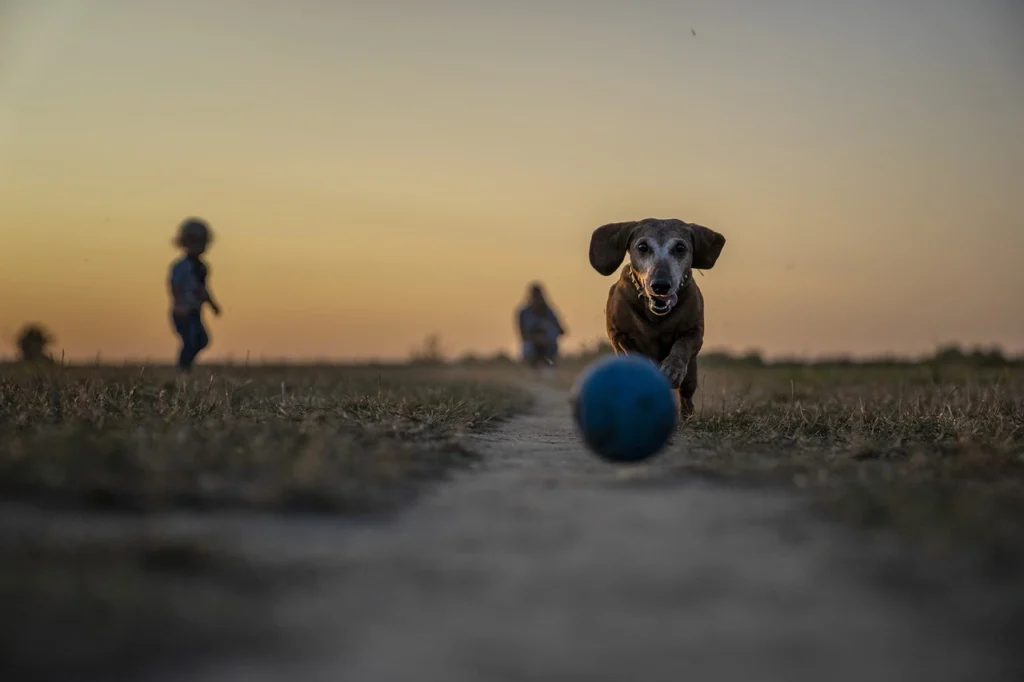
Dog Public Access Laws
Dog public access laws determine where dogs are allowed and under what conditions. Here’s a breakdown of key factors:
- State vs. Local Regulations: Virginia lacks a uniform statewide law. Instead, public access for dogs is primarily governed by local ordinances enacted by cities, counties, and towns.
- Variations by Location: Specific regulations and restrictions can vary significantly between localities. What’s allowed in one town might be prohibited in another.
Finding Information About Dog Public Access Laws
Due to the localized nature of dog public access laws, here’s how to find information specific to your area:
- Visit Your Local Government Website: Most municipal or county government websites have resources detailing animal control ordinances, often including sections on dog access to public spaces.
- Contact Your Local Parks and Recreation Department: Park access for dogs often falls under the purview of the parks and recreation department. They can provide details on leash laws, dog park locations, and any designated dog-free areas within parks.
- Check with Local Businesses: Many businesses, like restaurants with outdoor seating or shops, establish their own policies regarding dogs on their premises. Look for signage or call ahead to inquire.
Common Types of Dog Public Access
While regulations might vary, here are some common types of public access for dogs in Virginia:
- Dog Parks: Many localities have designated dog parks offering fenced-in areas where dogs can socialize and exercise off-leash under owner supervision.
- Leash Laws in Public Areas: Most public spaces, like parks, trails, and sidewalks, require dogs to be on a leash of a specific length, typically 6 feet.
- Restaurant Patios: Some restaurants with outdoor patios allow well-behaved dogs, often requiring them to be leashed and under owner control.
- Retail Stores: Some pet-friendly stores might allow leashed dogs to accompany their owners while shopping.
Responsible Dog Ownership for Public Access
Enjoying public access with your dog hinges on responsible ownership:
- Respect Local Regulations: Always research and adhere to local ordinances regarding dog access in specific areas.
- Leash Laws and Control: Ensure your dog is on a leash of the appropriate length and that you maintain control at all times.
- Clean Up After Your Dog: Always carry waste bags and dispose of your dog’s waste promptly and responsibly.
- Respectful Interactions: Be mindful of others using public spaces. Avoid letting your dog jump on people or block walkways.
- Dog Park Etiquette: Familiarize yourself with dog park rules and ensure your dog is well-socialized before venturing into off-leash areas.
The Benefits of Responsible Dog Public Access
Responsible dog access to public spaces offers numerous benefits:
- Improved Physical and Mental Health: Exercise and socialization opportunities in public spaces enhance your dog’s well-being.
- Strengthened Bond: Shared experiences exploring public spaces can deepen the bond between you and your canine companion.
- Enhanced Community Life: Dog-friendly public spaces foster a sense of community and allow responsible dog owners to integrate their furry family members into daily activities.
Advocacy for Dog-Friendly Policies
Do you believe your community could benefit from more dog-friendly public spaces? Consider these advocacy efforts:
- Research Successful Models: Explore dog-friendly policies implemented in other communities and gather data on their effectiveness.
- Engage with Local Authorities: Reach out to your local government representatives to discuss the benefits of responsible dog access in public spaces.
- Support Dog-Friendly Businesses: Patronize businesses welcoming leashed dogs, demonstrating the positive impact of responsible dog public access.
Dog Travel and Transportation Laws in Virginia
Virginia, a state rich in history and natural beauty, beckons adventure seekers and their furry companions. Imagine exploring the scenic Blue Ridge Mountains with your dog by your side, or strolling along the vibrant Virginia Beach boardwalk with your canine friend. But before embarking on your Virginia travel adventure with your dog, it’s crucial to understand the legalities of dog travel and transportation within the state.
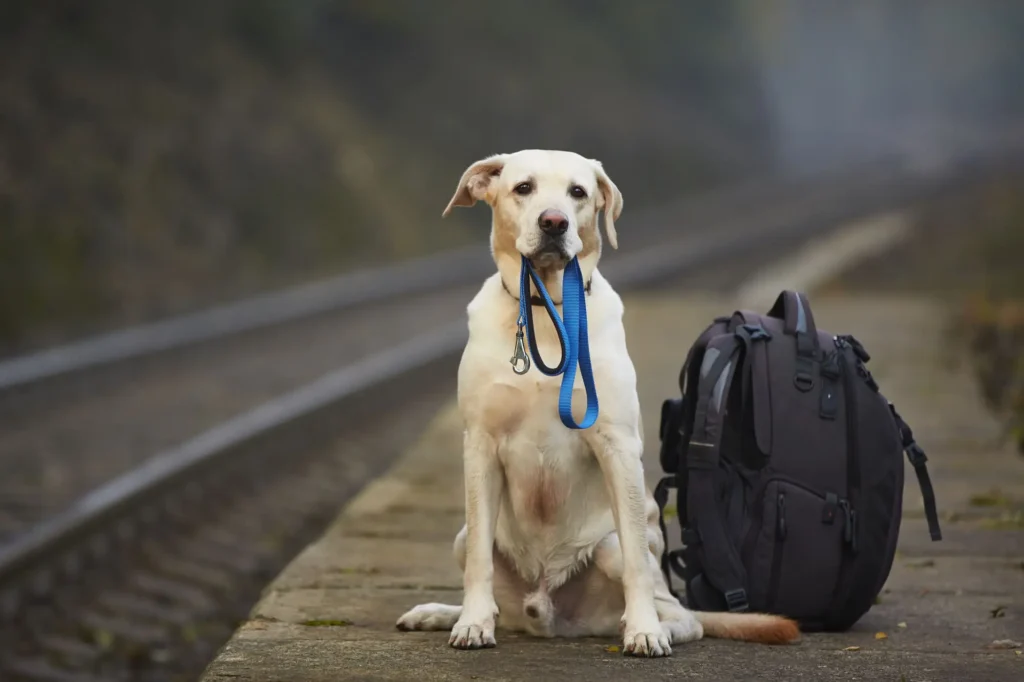
Planning for a Smooth Journey
While Virginia doesn’t have a single, overarching law governing dog travel within the state, some key factors require attention:
- Destination Restrictions: Certain localities or establishments, like state parks or campgrounds, might have specific regulations regarding dog access. Always research your destination’s pet policies beforehand.
- Health Requirements: If traveling across state lines, some states might have specific vaccination or health certificate requirements for incoming dogs. Check with your destination state’s animal control department for details.
- Vehicle Safety: Ensure your dog travels safely and securely in your vehicle. Consider using a crate, harness with a seatbelt tether, or a dog car barrier, depending on your dog’s size and temperament.
Dog-Friendly Accommodations
Many hotels, motels, vacation rentals, and campgrounds in Virginia welcome canine guests. Here’s how to find dog-friendly accommodations:
- Search Platforms: Many online travel booking platforms allow you to filter accommodation options based on pet-friendliness.
- Contact Properties Directly: Reach out to potential accommodations directly to confirm their pet policies and any associated fees.
Common Carrier Regulations
If your travel plans involve public transportation like buses or trains, understanding their pet policies is crucial:
- Limited Availability: Many public transportation options in Virginia might have limited availability for dogs, often requiring advance booking and specific size or breed restrictions.
- Vaccination Requirements: Public transportation providers might require proof of current rabies vaccination and health certificates for your dog.
- Crate Requirements: Dogs typically need to be transported in secure carriers or crates on public transportation.
Flying with Your Dog
While Virginia itself doesn’t have specific regulations regarding flying with dogs, airlines have their own pet travel policies:
- Airline-Specific Policies: Each airline has its own rules regarding pet fees, weight restrictions, carrier requirements, and even specific dog breeds allowed in the cabin or cargo hold. Research your chosen airline’s pet travel policies meticulously.
- Health Certificates: Airlines often require a health certificate from your veterinarian issued within a specific timeframe before your flight.
- Advanced Booking: Due to limited pet availability on flights, booking your dog’s spot alongside your own ticket well in advance is essential.
Packing Essentials for Dog Travel
Here are some key items to pack for a smooth dog travel experience:
- Food and Water: Pack enough familiar food and water for your dog throughout your journey, considering travel delays.
- Leash and Waste Bags: Always be prepared to clean up after your dog, regardless of the location.
- Medications: If your dog requires medication, bring an adequate supply for the duration of your trip.
- Vaccination Records: Keep copies of your dog’s current vaccination records readily accessible, especially for crossing state lines or airline travel.
- Comfort Items: Familiar toys, bedding, or treats can help reduce your dog’s travel anxiety.
Additional Considerations
Beyond legalities, prioritize your dog’s safety and comfort during travel:
- Never Leave Your Dog Unattended in a Hot Car: Even on seemingly mild days, temperatures inside a parked car can rise rapidly, posing a serious health risk to your dog.
- Take Breaks for Exercise and Potty Time: Schedule regular breaks during long journeys to allow your dog to relieve themselves and stretch their legs.
- Consult Your Veterinarian: Discuss your travel plans with your veterinarian, especially for dogs with health concerns or anxiety issues.
Dog Housing and Accommodation Laws in Virginia
Virginia, a state brimming with historical charm and scenic beauty, is a haven for dog lovers. With an estimated 2.2 million canine companions gracing Virginia’s homes, finding suitable housing that welcomes your furry friend is crucial.
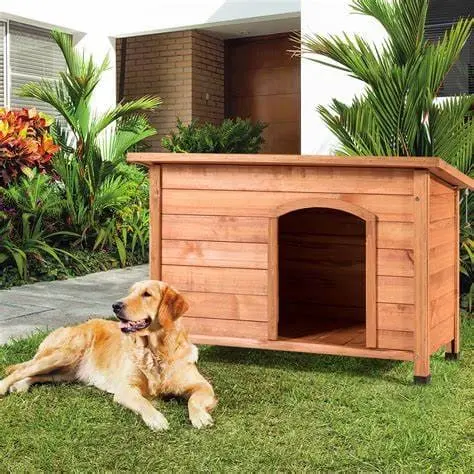
The Fair Housing Act and Assistance Animals
While Virginia doesn’t have a single, statewide law governing dogs in housing, the Federal Fair Housing Act (FHA) plays a vital role. The FHA prohibits discrimination based on disability and ensures equal housing opportunities for people with disabilities who rely on assistance animals. Here’s a breakdown of key points:
- Service Animals vs. Emotional Support Animals: The FHA recognizes service animals, which are dogs trained to perform specific tasks for individuals with disabilities (seeing-eye dogs, hearing assistance dogs, etc.). The FHA also covers emotional support animals (ESAs) that provide emotional comfort or support to alleviate symptoms of a disability, but ESAs don’t require specific training tasks.
- Reasonable Accommodation: Landlords are obligated to provide reasonable accommodations for tenants with disabilities who require assistance animals. This might involve waiving “no pet” policies or allowing a reasonable number of assistance animals.
- Documentation Requirements: Landlords can request documentation from a healthcare professional verifying the disability and need for an assistance animal. However, they cannot request specific details about the disability.
- Pet Fees and Deposits: Landlords cannot charge additional pet fees or deposits for assistance animals. However, they can hold tenants responsible for any damage caused by their assistance animal.
State Law and Assistance Animals
Virginia law complements the FHA’s protections for assistance animals:
- Virginia Fair Housing Law: This law mirrors the FHA’s provisions regarding reasonable accommodation for assistance animals in housing.
- Rights and Responsibilities: Virginia law outlines the responsibilities of residents with assistance animals, such as maintaining proper control and cleaning up after their animal. Landlords can still enforce these rules and take action for violations, but they cannot discriminate based solely on having an assistance animal.
Finding Dog-Friendly Housing
While the FHA and Virginia law protect the rights of tenants with assistance animals, many dog owners seek housing that welcomes all canines:
- Limited Availability: Dog-friendly housing can be competitive, especially in high-demand areas.
- Breed Restrictions: Some dog-friendly rentals might have breed restrictions based on size, insurance policies, or historical stereotypes (often unfounded) about certain breeds.
- Pet Fees and Deposits: Landlords can charge reasonable pet fees and deposits for non-assistance animals.
- Screening Processes: Some dog-friendly rentals might have pet screening processes that evaluate factors like breed, training history, and references.
Strategies for Finding Dog-Friendly Housing
Here are some tips for navigating the search for dog-friendly housing in Virginia:
- Research Online Platforms: Many online rental listing platforms allow filtering based on pet-friendliness.
- Contact Landlords Directly: Inquire about pet policies before applying, and be prepared to answer questions about your dog.
- Highlight Your Responsible Pet Ownership: Provide references from previous landlords who can vouch for your responsible pet ownership.
- Consider Offering a Higher Pet Deposit: Offering a higher pet deposit might be an attractive option for landlords hesitant about potential damage.
Building a Positive Relationship with Your Landlord
Once you find a dog-friendly place, fostering a positive relationship with your landlord is key:
- Abide by Pet Policies: Always adhere to the specific pet policies outlined in your lease agreement.
- Clean Up After Your Dog: Be a responsible pet owner and promptly clean up after your dog both inside and outside the premises.
- Maintain Open Communication: Communicate any pet-related concerns or issues to your landlord promptly.
The Importance of Responsible Dog Ownership
Finding dog-friendly housing ultimately depends on responsible pet ownership:
- Training and Socialization: Investing in proper training and socialization for your dog can make them more welcome in any housing situation.
- Noise Control: Be mindful of noise levels caused by your dog, especially in apartment settings.
- Respecting Common Areas: Ensure your dog doesn’t damage common areas or create disturbances for other residents.
Dog Adoption and Sale Laws in Virginia
Virginia, a state steeped in history and renowned for its natural beauty, boasts a vibrant dog-loving community. Whether you dream of welcoming a rescue pup into your life or seeking a specific breed from a breeder, understanding Virginia’s dog adoption and sale laws is crucial.
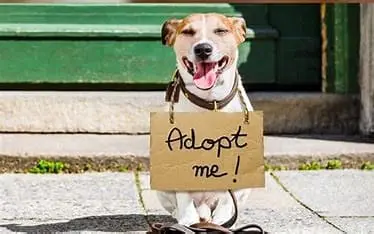
The Landscape of Dog Acquisition
Virginia offers several avenues for welcoming a canine companion into your home:
- Adopting from a Shelter or Rescue: Shelters and rescues care for abandoned, surrendered, or stray dogs, offering them a second chance at a loving home.
- Purchasing from a Breeder: Breeders specialize in raising purebred dogs, often focusing on specific breeds and adhering to breed standards.
- Finding a Dog Through Rehoming: Individuals sometimes rehome their dogs due to various reasons. Responsible rehoming involves finding a suitable new home that prioritizes the dog’s well-being.
Dog Adoption Laws
Virginia aims to promote responsible pet ownership and animal welfare through its adoption laws:
- Licensing Requirements: All dogs four months of age or older in Virginia must be licensed with their local locality. Adoption agencies typically handle the initial licensing process for adopted dogs.
- Spay/Neuter Requirements: Many shelters and rescues in Virginia require spaying or neutering adopted dogs before they go home. This helps control pet overpopulation and promotes responsible pet ownership.
- Vaccination Requirements: Adopting shelters and rescues ensure dogs are up-to-date on essential vaccinations before adoption.
Finding the Perfect Rescue or Shelter
With numerous shelters and rescues throughout Virginia, here are some resources to help you find your perfect match:
- Virginia Federation of Animal Shelters (VFAS): The VFAS website provides a directory of member shelters across Virginia.
- National Shelter Directory Websites: Websites like Petfinder or Adopt-a-Pet allow searching for adoptable dogs in your area by zip code or breed.
- Breed-Specific Rescue Organizations: For specific breeds, consider contacting breed-specific rescue organizations operating in Virginia.
The Adoption Process
The adoption process typically involves these steps:
- Application and Screening: You’ll likely need to complete an application form and undergo a screening process to assess your suitability as a pet owner.
- Meeting the Dogs: Shelters and rescues will arrange for you to meet potential canine companions to ensure a good fit.
- Adoption Agreement and Fees: Upon finding your perfect match, you’ll finalize the adoption with an agreement outlining your responsibilities and associated adoption fees, which might cover licensing, vaccinations, and spaying/neutering.
Dog Sale Laws
While Virginia doesn’t have extensive regulations for dog sales, some key points require attention:
- Pet Shop Procurement: Virginia law mandates that pet shops selling dogs source them only from licensed breeders, shelters, or rescues. This aims to reduce reliance on puppy mills and promote responsible breeding practices.
- Breeder Responsibility: While Virginia doesn’t have mandatory breeder licensing, reputable breeders prioritize the health and well-being of their dogs.
- Consumer Protection: Virginia’s “Lemon Law” for pets offers some consumer protection for purchasing dogs from pet shops or breeders. It allows recourse if the dog develops a serious health condition shortly after purchase.
Finding a Reputable Dog Breeder
If your heart is set on a specific breed, here are some resources to find a reputable breeder:
- National Breed Clubs: Many national breed clubs maintain breeder directories with members adhering to ethical breeding practices.
- Online Resources: Websites maintained by reputable breed registries or kennel clubs can offer breeder listings.
- Recommendations and Word-of-Mouth: Seek recommendations from veterinarians, dog trainers, or other responsible dog owners familiar with ethical breeders.
Visiting a Breeder
When visiting a breeder, consider these factors:
- Facility Conditions: Ensure the kennel is clean, well-maintained, and prioritizes the dogs’ well-being.
- Parental Health: Inquire about the health history of the parent dogs and any genetic testing performed.
- Socialization Practices: Reputable breeders socialize their puppies from a young age to promote well-adjusted personalities.
- Contracts and Guarantees: Review any contracts outlining breeder guarantees and your responsibilities as a new puppy owner.
Dog Park and Recreation Laws in Virginia
Virginia, a state rich in history and natural beauty, boasts a vibrant dog-loving community. With an estimated 2.2 million canine companions enjoying Virginia’s landscapes, dog parks offer designated areas for off-leash socialization and exercise. However, navigating dog park etiquette and understanding leash laws in public recreation areas requires knowledge of local regulations.
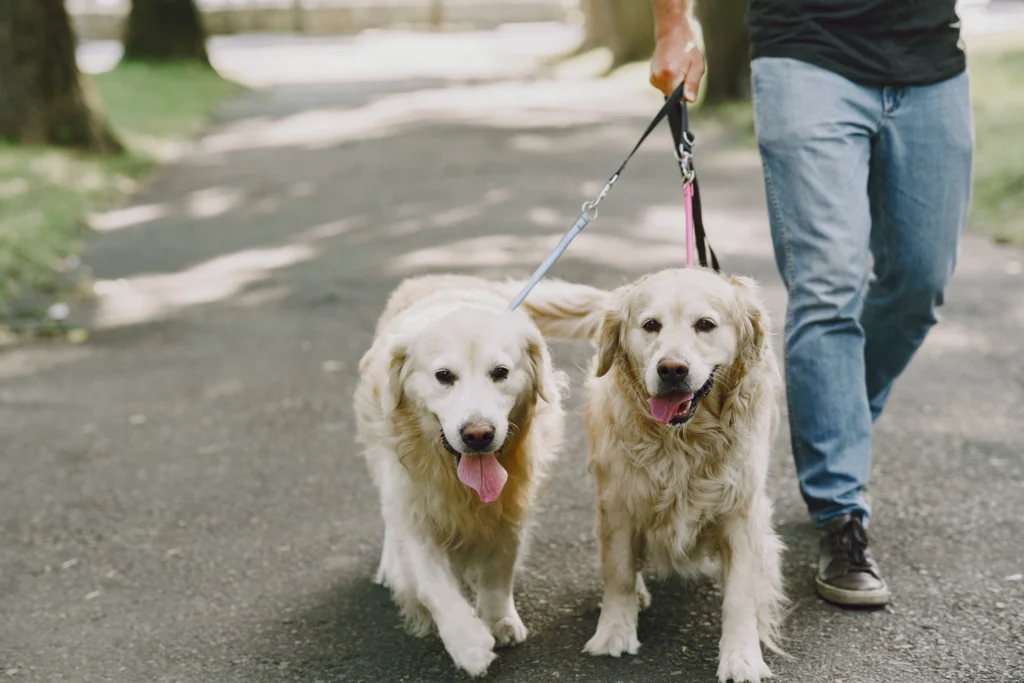
Responsible Dog Ownership in Parks and Recreation Areas
Enjoying Virginia’s parks and recreation areas with your dog hinges on responsible ownership:
- Leash Laws: Most public recreation areas in Virginia, including parks, trails, and sidewalks, require dogs to be on a leash of a specific length, typically around 6 feet. Always check signage or contact local park authorities for specific leash law details.
- Respecting Others: Be mindful of other park users and avoid letting your dog jump on people or block walkways. Clean up after your dog promptly and dispose of waste bags in designated bins.
- Voice Control: While some parks might allow off-leash activity in designated areas under voice control, ensure your dog reliably obeys commands before venturing off-leash.
Dog Park Regulations
Virginia lacks a single, unified dog park law. Instead, dog park regulations are primarily established and enforced by local municipalities, towns, and counties. Here’s how to find information specific to your area:
- Municipal or County Websites: Most local government websites have resources detailing park regulations, often including sections dedicated to dog parks and their specific rules.
- Contact Park Authorities: The department responsible for park maintenance can provide details on leash laws, dog park locations, and any designated dog-free areas within parks.
Common Dog Park Rules
While specific regulations might vary, here are some common dog park rules encountered in Virginia:
- Licensing and Vaccination Requirements: Many dog parks require dogs to be licensed in their locality and current on essential vaccinations like rabies.
- Size or Age Restrictions: Some dog parks might have separate areas for large and small dogs or restrict entry to dogs above a certain age (often 4 months old).
- Obligations for Owners: Supervision is paramount. Owners are responsible for their dogs’ behavior at all times and must maintain control using a leash when entering or exiting the dog park area.
- Aggressive Dog Removal: Signs of aggression towards other dogs or humans warrant immediate removal from the dog park.
- Maintaining a Clean Environment: Responsible dog owners must clean up after their pets and dispose of waste bags in designated receptacles.
Dog Park Etiquette for a Positive Experience
Beyond the legalities, dog park etiquette promotes safety and fun for everyone:
- Socialize Your Dog: Ensure your dog is well-socialized before venturing into an off-leash environment. Observe interactions and assess your dog’s comfort level before engaging in free play.
- Respect Other Dogs and Owners: Read canine body language and intervene if your dog exhibits signs of dominance or aggression. Be mindful of other dog owners and their preferences.
- Leave if Necessary: If your dog struggles to socialize or becomes overly excited, leave the park and try again another time.
Benefits of Dog Parks and Responsible Public Recreation
Dog parks and responsible leash law adherence in public recreation areas offer numerous benefits:
- Improved Dog Health and Well-being: Exercise and socialization opportunities in dog parks and leash-friendly trails enhance your dog’s physical and mental health.
- Stronger Bond with Your Dog: Shared experiences exploring public spaces can deepen the bond between you and your canine companion.
- Enhanced Community Life: Dog parks and leash-friendly recreation areas foster a sense of community and allow responsible dog owners to integrate their furry family members into daily activities.
Advocacy for Dog-Friendly Parks and Recreation
Do you believe your community could benefit from more dog-friendly recreation areas or improved dog park facilities? Consider these advocacy approaches:
- Research Successful Models: Explore dog park regulations and amenities in other communities and gather data on their effectiveness.
- Engage with Local Authorities: Reach out to your local government representatives to discuss the benefits of responsible dog access in public recreation areas and dog park improvements.
- Support Dog Park Initiatives: Volunteer with existing dog park organizations or participate in fundraising efforts to maintain and enhance dog park facilities.
Dog Food and Nutrition Laws in Virginia
Virginia, a state steeped in history and renowned for its scenic beauty, is home to countless canine companions. Ensuring your dog thrives requires understanding proper nutrition. While Virginia doesn’t have specific laws directly regulating dog food ingredients or labeling, this comprehensive guide explores key resources and considerations for choosing safe and nutritious food for your furry friend.
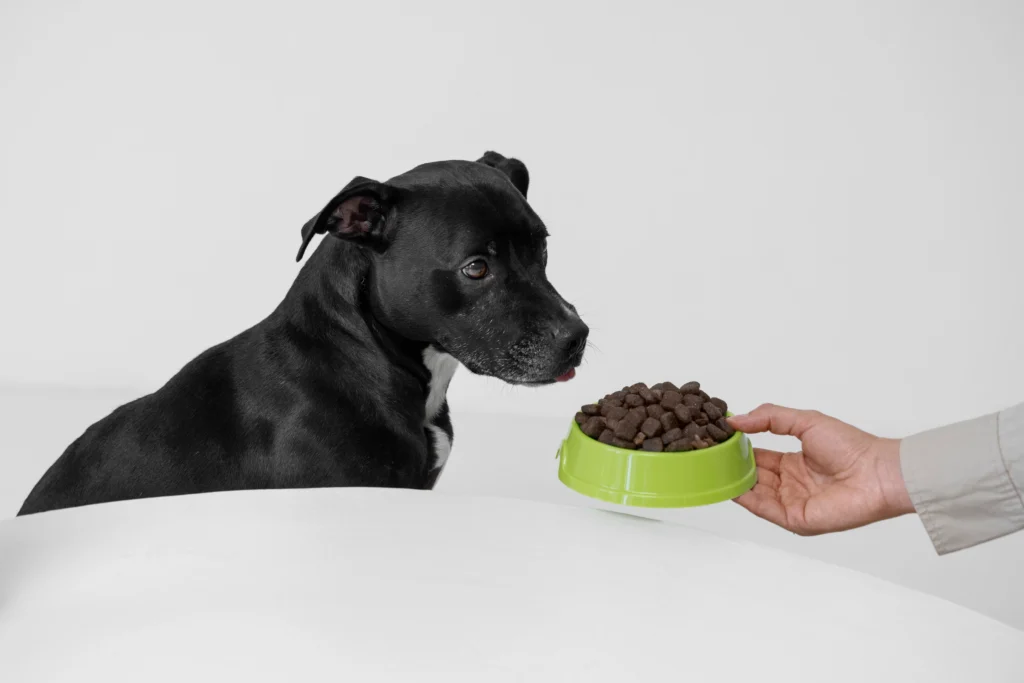
The Role of Federal Regulations in Dog Food
The primary governing body for dog food safety and labeling in the United States is the Food and Drug Administration (FDA). Here’s how the FDA plays a crucial role:
- Food Safety Standards: The FDA sets guidelines for safe manufacturing practices and ingredient quality to ensure dog food isn’t contaminated with harmful substances.
- Labeling Requirements: The FDA mandates specific labeling information, including the product name, guaranteed analysis, nutritional adequacy statement, feeding directions, and calorie statements on dog food packaging.
Understanding Dog Food Labels
Learning to interpret dog food labels empowers you to make informed choices:
- Guaranteed Analysis: This section lists the minimum percentages of protein, fat, fiber, and moisture content in the food.
- Nutritional Adequacy Statement: This statement indicates whether the food meets the nutritional requirements for a specific life stage (puppy, adult, senior) as established by the Association of American Feed Control Officials (AAFCO).
- Ingredients: Ingredients are listed in descending order by weight, with the first ingredient being the most prevalent.
Choosing the Right Dog Food
Several factors influence the ideal dog food for your furry friend:
- Age and Life Stage: Puppies, adults, and senior dogs have different nutritional needs. Choose food formulated for your dog’s specific life stage.
- Breed Size: Larger breeds require different nutritional profiles than smaller breeds.
- Activity Level: Highly active dogs might need food with higher calorie content.
- Health Considerations: If your dog has any health concerns, consult your veterinarian for specialized dietary recommendations.
Consulting Your Veterinarian for Nutritional Guidance
Your veterinarian is your best resource for personalized dog food recommendations:
- Understanding Your Dog’s Needs: Veterinarians can assess your dog’s individual needs and health status to recommend appropriate food choices.
- Addressing Allergies or Sensitivities: If your dog suffers from allergies or sensitivities, your veterinarian can help identify suitable hypoallergenic or limited-ingredient diets.
- Monitoring Weight and Body Condition: Regular veterinary checkups allow you to monitor your dog’s weight and body condition, potentially prompting adjustments in their diet.
Additional Considerations
While dog food plays a vital role, here are some additional factors to consider for optimal canine nutrition:
- Fresh Water Availability: Ensure your dog has constant access to clean, fresh water throughout the day.
- Portion Control: Overfeeding can lead to obesity and associated health problems. Follow feeding guidelines on the food label or consult your veterinarian for appropriate portion sizes.
- Table Scraps: Avoid sharing human food with your dog regularly. Many human foods are unhealthy for dogs, and table scraps can disrupt their balanced diet.
- Treats: Limit treats to a reasonable portion of your dog’s daily calorie intake. Opt for healthy treats made with natural ingredients.
Common Dog Food Concerns
Dog food safety and nutrition can be complex topics. Here’s how to navigate potential concerns:
- Food Recalls: The FDA issues recalls for dog food that might be unsafe due to contamination or other issues. Check the FDA website for any current dog food recalls.
- Debunking Myths: Numerous myths and misconceptions circulate regarding dog food ingredients and processing methods. Research reputable sources like the FDA or AAFCO websites for accurate information.
- Beware of Misleading Marketing: Marketing claims can be confusing. Focus on the ingredients list and guaranteed analysis on the label to make informed decisions.
Dog Health and Veterinary Care Laws in Virginia
Virginia, a state brimming with history and natural beauty, boasts a vibrant dog-loving community. Keeping your canine companion healthy and happy is paramount. Understanding dog health and veterinary care laws in Virginia empowers you to make informed decisions regarding your dog’s well-being.
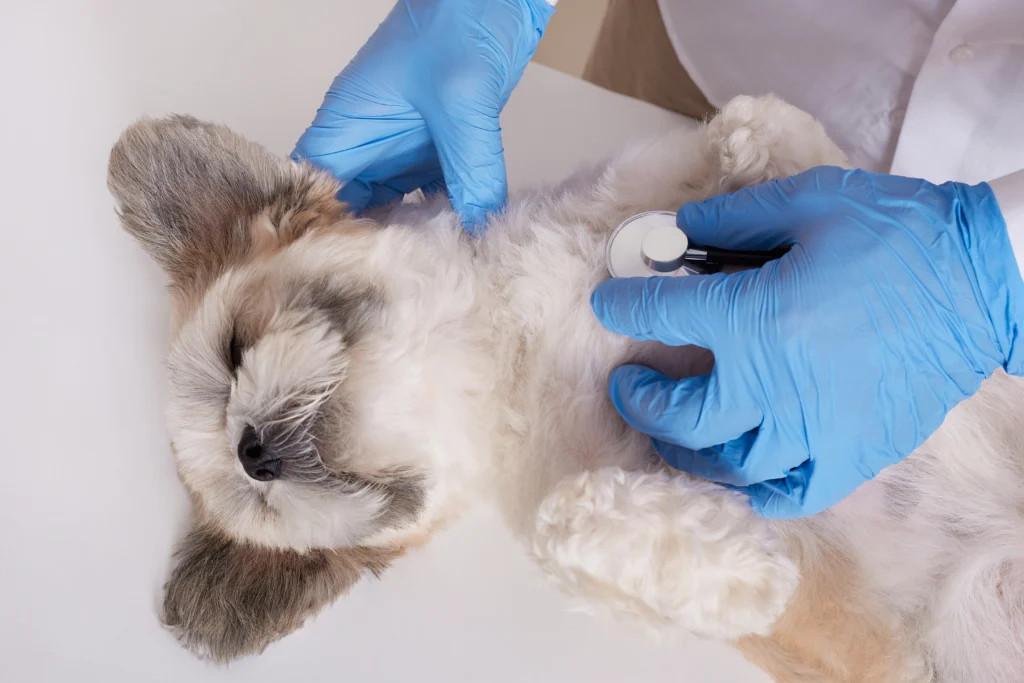
Responsible Pet Ownership and Preventative Care
While Virginia doesn’t have specific laws mandating veterinary care for dogs, responsible pet ownership prioritizes preventative care and timely medical attention when needed. Here’s how prioritizing your dog’s health benefits everyone:
- Improved Quality of Life: Regular veterinary checkups, vaccinations, and parasite prevention measures help ensure a long and healthy life for your dog.
- Early Disease Detection: Preventative care allows veterinarians to detect potential health issues early on, often leading to more successful treatment outcomes.
- Public Health Protection: Vaccinations protect your dog from potentially deadly diseases and help control the spread of zoonotic diseases transmissible to humans.
The Role of the Virginia Board of Veterinary Medicine
The Virginia Board of Veterinary Medicine (VBVM) plays a crucial role in ensuring the quality of veterinary care available to dogs in Virginia:
- Licensing and Regulation: The VBVM licenses veterinarians in Virginia and enforces regulations governing veterinary practice.
- Complaint Process: If you have concerns about the care your dog received at a veterinary clinic, you can file a complaint with the VBVM.
- Consumer Protection: The VBVM works to protect pet owners from unethical or unprofessional veterinary practices.
Finding a Reputable Veterinarian
Choosing a veterinarian who prioritizes your dog’s well-being is essential. Here are some resources to help you find a qualified vet:
- American Veterinary Medical Association (AVMA): The AVMA website provides a directory of veterinarians searchable by location.
- Online Reviews: Read online reviews from other pet owners, but remember to take them with a grain of salt.
- Recommendations: Ask friends, family, or local dog owners for recommendations of reputable veterinarians in your area.
What to Expect During a Veterinary Visit
A typical veterinary visit in Virginia might involve:
- Comprehensive Examination: The veterinarian will conduct a physical examination, discuss your dog’s medical history, and address any concerns you have.
- Vaccinations: Depending on your dog’s age and lifestyle, vaccinations for rabies, distemper, parvovirus, and other diseases might be recommended.
- Parasite Prevention: Veterinarians often recommend parasite prevention medications to protect your dog from fleas, ticks, heartworms, and intestinal parasites.
- Discussion of Treatment Options: If your dog requires treatment for a specific health concern, the veterinarian will discuss diagnosis, treatment options, and associated costs.
Veterinary Costs and Payment Options
Veterinary care can be expensive. Here’s how to navigate the financial aspects:
- Cost Transparency: Ask about potential costs for services before treatment begins. Many veterinary clinics offer estimates beforehand.
- Payment Options: Most veterinary clinics accept major credit cards and debit cards. Some might offer payment plans.
- Pet Insurance: Consider pet insurance to help manage the financial burden of unexpected veterinary expenses.
Animal Cruelty Laws
Virginia has animal cruelty laws in place to protect dogs from neglect and abuse. Here’s a breakdown of key points:
- Definition of Cruelty: Virginia law defines animal cruelty as intentionally inflicting unnecessary pain, suffering, or death upon an animal.
- Reporting Requirements: If you suspect animal cruelty, you are legally obligated to report it to your local animal control agency or law enforcement.
- Penalties for Cruelty: Animal cruelty in Virginia is a misdemeanor, and penalties can include fines and/or jail time.
Additional Resources
Here are some additional resources to empower you to become your dog’s health advocate:
- Virginia Department of Agriculture and Consumer Services (VDACS): The VDACS website provides resources on animal health and welfare in Virginia.
- American Society for the Prevention of Cruelty to Animals (ASPCA): The ASPCA website offers a wealth of information on dog health, including articles and educational resources.
Dog Identification and Microchipping Laws in Virginia
Virginia, a state steeped in history and renowned for scenic beauty, boasts a vibrant dog-loving community. Losing your furry friend can be a devastating experience. Fortunately, proper identification and microchipping significantly increase the chances of a safe reunion.
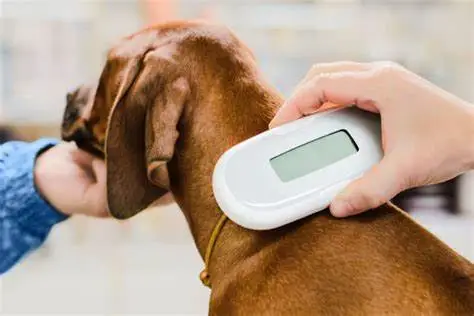
The Importance of Dog Identification
While Virginia doesn’t have a statewide mandate for microchipping dogs, all dogs four months of age or older must be licensed with their local locality. Here’s how proper identification benefits both dogs and their owners:
- Increased Recovery Rates: Lost dogs with collars and license tags are significantly more likely to be reunited with their owners.
- Reduced Time in Shelters: Identification helps animal control officers quickly locate owners, minimizing the time dogs spend in shelters.
- Peace of Mind for Dog Owners: Knowing your dog is identified offers peace of mind and allows for a quicker response should they become lost.
Dog Licensing
Dog licensing is a crucial aspect of dog identification in Virginia. Here’s what you need to know:
- Local Licensing Requirements: Licensing requirements and fees vary by locality. Contact your local animal control agency or veterinarian’s office to understand specific licensing procedures in your area.
- Licensing Process: The licensing process typically involves completing an application form, providing proof of rabies vaccination, and paying a licensing fee.
- License Tags: Upon licensing, your dog will receive a metal tag with a unique identification number that should be attached to their collar at all times.
Microchipping for Dogs
Microchipping offers an additional layer of security for dog identification:
- Permanent Identification: A microchip, about the size of a rice grain, is implanted under your dog’s skin between the shoulder blades. It contains a unique identification number that can be read by a universal microchip scanner.
- Recovery Advantages: If your dog becomes lost and ends up at a shelter or veterinary clinic, a microchip scanner can identify them, leading them back to you even if their collar and tags are missing.
- Nationwide Database Registration: Microchips are most effective when registered with a national pet recovery database. Ensure your contact information is kept up-to-date in the database.
Microchipping Laws
While Virginia doesn’t mandate microchipping for all dogs, some key points to consider include:
- Shelter and Rescue Practices: Many animal shelters and rescues in Virginia microchip dogs before adoption, promoting responsible pet ownership and increasing recovery rates for lost animals.
- Breeder Practices: Reputable dog breeders might also microchip puppies before placing them in new homes.
Benefits of Microchipping Your Dog
Microchipping offers numerous benefits for dog owners in Virginia:
- Increased Recovery Rates: Studies show microchipping significantly increases the likelihood of a lost dog being reunited with its owner.
- Peace of Mind: Knowing your dog carries a permanent form of identification offers peace of mind and allows for a quicker response if they get lost.
- Relatively Low Cost: Microchipping is a relatively inexpensive procedure compared to the emotional and financial toll of losing a pet.
Where to Get Your Dog Microchipped
Here are some options for getting your dog microchipped in Virginia:
- Veterinarians: Most veterinary clinics offer microchipping services.
- Animal Shelters and Rescue Organizations: Many shelters and rescues microchip dogs before adoption.
- Low-Cost Microchipping Events: Some animal welfare organizations or local governments might host low-cost microchipping events periodically.
Maintaining Up-to-Date Microchip Registration
Microchipping is only effective if the associated information is accurate and current. Here’s how to ensure your dog’s microchip registration is up-to-date:
- Registering Your Microchip: Upon microchipping, you’ll receive information on registering your dog’s chip with a national pet recovery database.
- Updating Your Information: Keep your contact information, including address, phone number, and email address, current in the database.
- Transferring Microchip Ownership: If you rehome your dog, ensure the microchip registration is transferred to the new owner.
Dog Breeding and Genetics Laws in Virginia
Virginia, a state rich in history and natural beauty, boasts a thriving dog-loving community. For those interested in becoming dog breeders, understanding the legal landscape surrounding breeding practices and canine genetics is crucial.
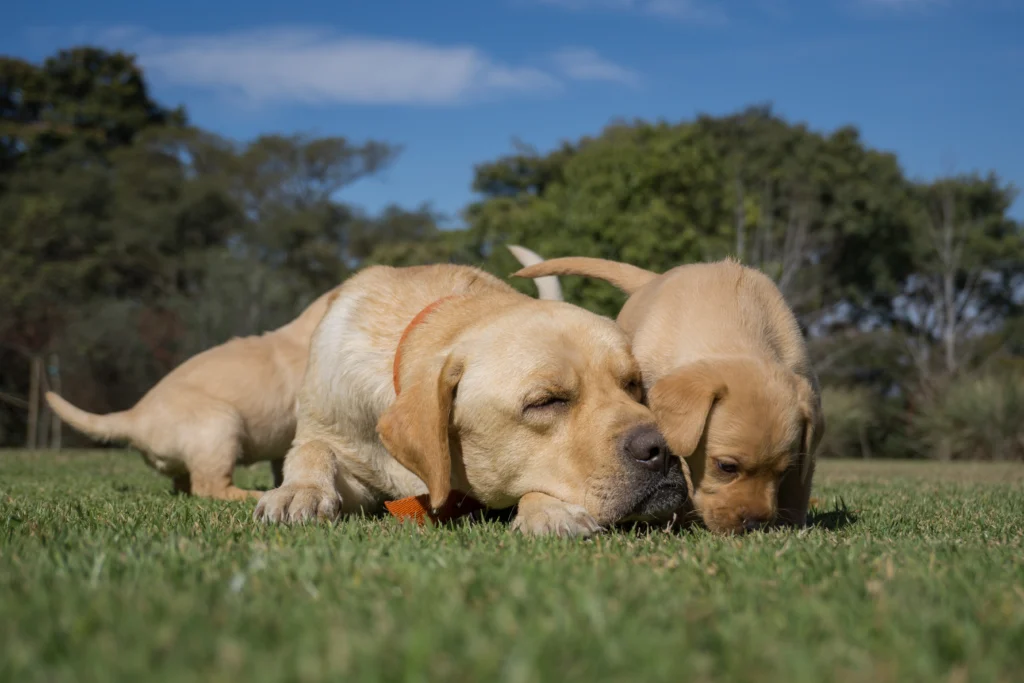
The Importance of Responsible Dog Breeding
While Virginia doesn’t have extensive regulations for dog breeders, responsible breeding practices are paramount. Here’s why:
- Promoting Healthy Bloodlines: Responsible breeders prioritize breeding dogs free from inheritable diseases and with desirable temperaments.
- Preventing Overpopulation: Responsible breeders typically place puppies in loving homes, avoiding contributions to pet overpopulation and the strain on animal shelters.
- Ethical Treatment of Breeding Dogs: Responsible breeders prioritize the health and well-being of their breeding stock, ensuring proper care, nutrition, and socialization.
Dog Breeder Licensing
Unlike some states, Virginia doesn’t require mandatory licensing for dog breeders. However, reputable breeders often adhere to voluntary codes of ethics established by breed clubs or kennel clubs. Here are some resources to identify responsible breeders:
- National Breed Clubs: Many national breed clubs maintain directories of breeders who adhere to specific breeding standards and ethical practices.
- Online Resources: Websites maintained by reputable breed registries or kennel clubs can offer breeder listings based on location and breed.
- Recommendations from Veterinarians or Trainers: Seek recommendations from veterinarians, dog trainers, or other responsible dog owners familiar with ethical breeders in Virginia.
Breeder Responsibilities Beyond Licensing
While licensing isn’t mandatory, responsible breeders in Virginia prioritize these aspects:
- Health Testing: Reputable breeders conduct health screenings on their breeding stock for common genetic diseases relevant to their specific breed.
- Pedigrees and Breed Standards: They maintain accurate pedigrees for their dogs and strive to breed according to established breed standards.
- Socialization Practices: Responsible breeders ensure puppies are well-socialized from a young age to promote confident and well-adjusted personalities.
- Contracts and Guarantees: They provide clear contracts outlining breeder guarantees regarding puppy health and potential after-sales support.
The Role of the Virginia Department of Agriculture and Consumer Services (VDACS)
The VDACS plays a limited role in regulating dog breeding in Virginia. However, they do oversee licensing for commercial kennels:
- Commercial Kennel Licensing: Kennels selling eight or more puppies a year require a commercial kennel license from the VDACS. This license ensures basic standards of care for breeding dogs.
- Animal Cruelty Laws: The VDACS enforces Virginia’s animal cruelty laws, which apply to all dog breeding operations.
Dog Genetics and Hereditary Diseases
Knowledge of canine genetics empowers responsible breeding decisions:
- Genetic Diversity: Responsible breeders strive for genetic diversity within their breeding stock to minimize the risk of inheritable diseases.
- Genetic Testing: Advances in genetic testing allow breeders to screen for specific diseases prevalent in certain breeds.
- Selective Breeding: By selectively breeding dogs free from genetic issues, breeders can improve the overall health of future generations.
Resources for Responsible Dog Breeding Practices
Several resources can guide responsible dog breeding practices in Virginia:
- American Kennel Club (AKC): The AKC website offers resources on responsible breeding, health testing recommendations, and breeder education programs.
- The Canine Health Information Center (CHIC): CHIC is a centralized database for canine health information, including genetic test results.
- National Breed Clubs: Many national breed clubs provide resources and guidance for ethical and responsible breeding practices specific to their breed.
Alternatives to Dog Breeding
While breeding can be a rewarding experience, consider these alternatives:
- Adopting from a Shelter or Rescue: Shelters and rescues are brimming with wonderful dogs in need of loving homes.
- Volunteering with a Breed Rescue Organization: Many breed-specific rescue organizations rely on volunteers to help care for dogs and find them forever homes.
Dog Environmental Impact Laws in Virginia
Virginia, a state steeped in history and renowned for its natural beauty, boasts a vibrant dog-loving community. While responsible pet ownership extends to your furry friend’s health and well-being, it also encompasses minimizing their environmental impact.

The Environmental Impact of Dogs
Dogs, while adored companions, do contribute to the environmental footprint. Here’s a breakdown of some key considerations:
- Waste Management: Dog waste, if not disposed of properly, can contaminate waterways and disrupt ecosystems.
- Meat Consumption: The meat-based ingredients in most dog food contribute to greenhouse gas emissions associated with animal agriculture.
- Water Usage: Dogs require fresh water daily, adding to overall water consumption.
Current Legal Landscape
Unlike some states exploring legislation to address pet waste management, Virginia currently lacks specific laws directly targeting dog environmental impact. However, existing regulations and responsible dog ownership practices can make a significant difference.
Responsible Dog Waste Management
Virginia’s leash laws and pooper-scooper ordinances are crucial aspects of responsible dog ownership:
- Leash Laws: Most public recreation areas in Virginia require dogs to be on a leash. This helps prevent them from roaming and defecating in undesignated areas.
- Pooper-Scooper Ordinances: Many localities in Virginia have ordinances mandating dog owners to pick up and properly dispose of their dog’s waste. Always check local signage or contact your municipality for specific requirements.
Eco-Friendly Dog Waste Management Practices
Responsible dog owners go beyond legal requirements for a cleaner environment:
- Biodegradable Bags: Utilize biodegradable poop bags to minimize plastic waste from waste disposal.
- Proper Disposal: Dispose of waste bags in designated dog waste bins or compost them in a designated home composting system (check local regulations for composting dog waste).
- Leave No Trace Principles: Adhere to Leave No Trace principles when enjoying the outdoors with your dog, including proper waste disposal and respecting wildlife habitats.
Minimizing the Environmental Impact of Dog Food
While Virginia lacks regulations on dog food, consider these eco-conscious choices:
- Sustainable Dog Food Brands: Research dog food brands committed to sustainable practices, such as using ethically sourced and recyclable packaging.
- Smaller Kibble Sizes: Smaller kibble often uses less processing and packaging than larger kibble pieces.
- Consider Alternative Protein Sources: Explore dog food options using alternative protein sources like insects or legumes, which can have a lower environmental footprint compared to traditional meat-based diets. Consult your veterinarian before making any dietary changes for your dog.
Reducing Your Dog’s Water Footprint
Simple practices can minimize your dog’s water consumption:
- Water Monitoring: Provide fresh water daily, but monitor your dog’s intake and adjust the amount as needed.
- Minimize Water Spills: Use a water bowl designed to minimize spills and encourage efficient water consumption.
- Consider Weather Conditions: During hot weather, offer your dog water more frequently to prevent dehydration, but avoid letting them waste water by playing in their water bowl.
Advocacy for Dog-Friendly Environmental Initiatives
Believe Virginia could benefit from dog-friendly environmental initiatives? Consider these avenues for advocacy:
- Research Successful Models: Explore dog park waste management practices or public education campaigns in other states that promote responsible dog ownership.
- Engage with Local Authorities: Reach out to your local government representatives to discuss the importance of responsible dog waste management and explore potential solutions.
- Support Eco-Friendly Dog Businesses: Patronize dog businesses committed to environmental sustainability, such as those offering biodegradable waste bags or eco-friendly dog grooming products.
Dog Behavioural Training Laws in Virginia
Virginia, a state rich in history and natural beauty, boasts a well-established dog-loving community. Ensuring your furry friend exhibits good behavior is not only desirable but contributes to a harmonious relationship and a safer environment.
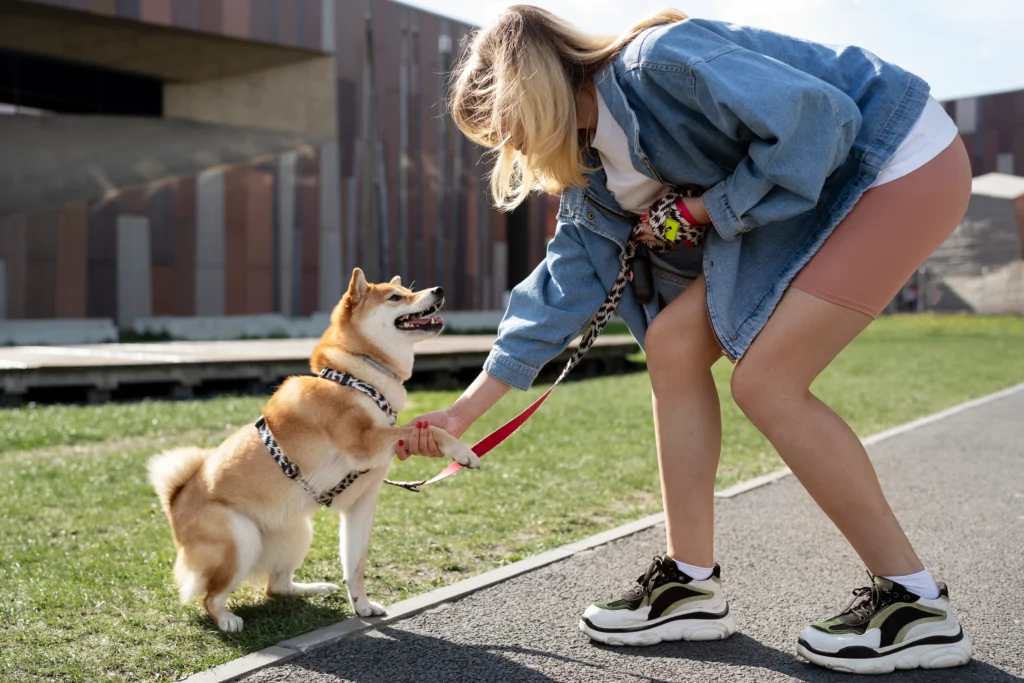
The Importance of Responsible Dog Training
While Virginia doesn’t have laws mandating dog training, responsible pet ownership prioritizes positive reinforcement training methods:
- Improved Quality of Life: Well-trained dogs are more enjoyable companions and integrate seamlessly into their owners’ lives.
- Enhanced Safety: Training fosters obedience, minimizing the risk of accidents or altercations with other animals or people.
- Reduced Stress for Dogs: Positive reinforcement techniques build trust and confidence, leading to a happier and less stressed dog.
Positive reinforcement training focuses on rewarding desired behaviors, making it an effective and humane approach:
- Rewarding Good Choices: This method encourages desirable behaviors by rewarding your dog with treats, praise, or playtime when they perform a desired action.
- Building Trust and Communication: Positive reinforcement strengthens the bond between you and your dog, fostering communication and understanding.
- Focus on Consistency and Patience: Effective training requires consistent application of rewards and clear communication with your dog.
Positive Reinforcement Training
Finding a Qualified Dog Trainer in Virginia
While Virginia doesn’t regulate dog training, here’s how to find a qualified trainer who utilizes positive reinforcement methods:
- Professional Associations: Look for trainers certified by reputable organizations like the Certification Council for Professional Dog Trainers (CCPDT) or the Association of Professional Dog Trainers (APDT).
- Positive Reinforcement Focus: Ensure the trainer uses positive reinforcement techniques and avoids methods relying on punishment or dominance.
- Experience and References: Research the trainer’s experience, areas of expertise, and request references from past clients.
Addressing Specific Behavioral Issues
Sometimes, dogs exhibit behavioral issues requiring professional guidance:
- Destructive Chewing: Identify the cause of the chewing and provide appropriate chew toys and redirection strategies.
- Excessive Barking: Address the underlying reason for barking and train your dog on a “quiet” command.
- Leash Pulling: Utilize positive reinforcement techniques like gentle tugs on the leash or stopping walking when your dog pulls.
Dog Muzzle Laws and Responsible Use
Virginia doesn’t have a statewide muzzle mandate, but some localities might enforce muzzle ordinances in specific situations:
- Aggressive Dogs: Muzzles might be required for dogs with a history of biting or aggression towards people or other animals.
- Public Transportation: Some public transportation systems might mandate muzzles for all dogs.
Always prioritize the comfort and safety of your dog when using a muzzle. A well-fitting muzzle should allow your dog to pant and drink water comfortably.
Animal Cruelty Laws and Training Methods
Virginia has animal cruelty laws in place to protect dogs from harsh training methods:
- Definition of Cruelty: Virginia law defines animal cruelty as intentionally inflicting unnecessary pain, suffering, or death upon an animal.
- Prohibited Training Methods: Training methods involving physical punishment, choke chains used for punishment, or prong collars used for extended periods are considered cruel.
Additional Resources
Here are some resources for responsible dog training in Virginia:
- American Society for the Prevention of Cruelty to Animals (ASPCA): The ASPCA website offers a wealth of information on positive reinforcement dog training.
- Virginia Veterinary Medical Association (VBVM): The VBVM website might offer resources or recommendations for qualified dog trainers in Virginia.
- Local Animal Shelters and Rescue Organizations: Many shelters and rescues offer dog training classes or can recommend positive reinforcement trainers in your area.
Dog Protection and Rescue Laws in Virginia
Virginia, a state steeped in history and renowned for its scenic beauty, boasts a vibrant community of dog lovers. Protecting vulnerable dogs and ensuring their well-being is a shared responsibility.
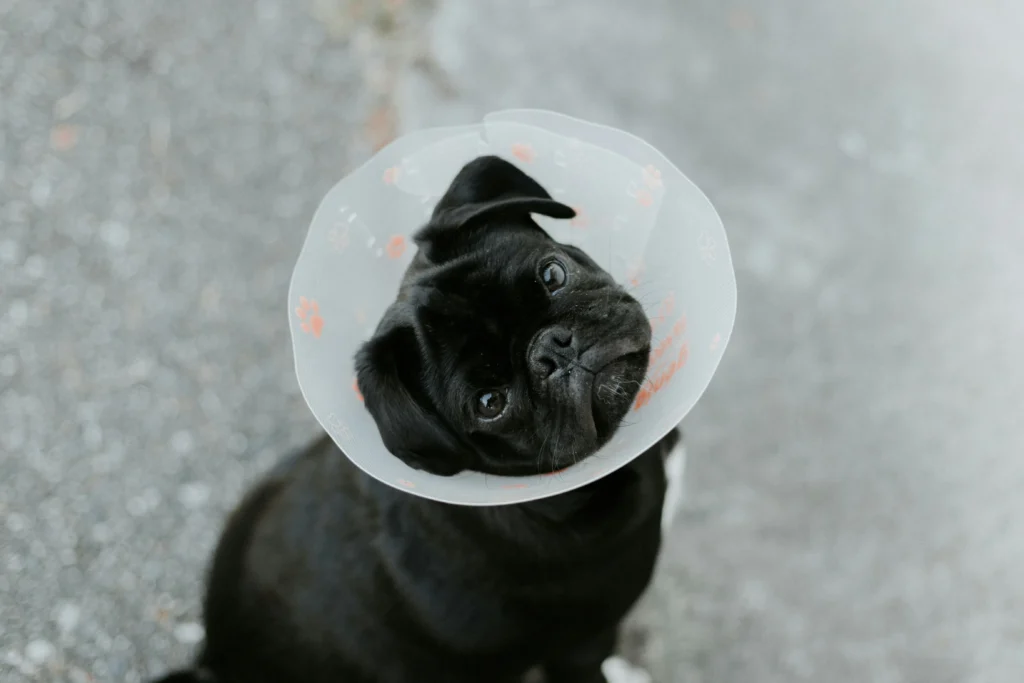
The Importance of Dog Protection Laws
Virginia has animal cruelty laws in place to safeguard dogs from neglect and abuse. Here’s a breakdown of key points:
- Definition of Cruelty: Virginia law defines animal cruelty as intentionally inflicting unnecessary pain, suffering, or death upon an animal.
- Prohibited Acts: Cruelty includes acts like starvation, dehydration, denial of veterinary care, or inflicting physical harm.
- Reporting Requirements: If you suspect animal cruelty, you are legally obligated to report it to your local animal control agency or law enforcement.
Animal Cruelty Investigations
If you report suspected animal cruelty, here’s what to expect:
- Investigation Process: Animal control officers or law enforcement will investigate the situation. This might involve collecting evidence and interviewing witnesses.
- Potential Outcomes: If cruelty is confirmed, the animal might be removed from the situation and placed in protective care. The abuser could face criminal charges and fines.
- Your Role: Cooperate with authorities during the investigation and provide any relevant information.
Reporting and Responding to Animal Neglect
Animal neglect, while not always as blatant as cruelty, can also have severe consequences for dogs:
- Signs of Neglect: Signs include inadequate food, water, shelter, veterinary care, or proper sanitation.
- Reporting Neglect: Like cruelty, suspected neglect should be reported to animal control or law enforcement.
- Rescue Efforts: If you encounter a neglected dog in immediate danger, prioritize their safety and contact authorities promptly.
The Role of Animal Shelters and Rescue Organizations
Animal shelters and rescue organizations play a vital role in protecting and rehoming dogs in Virginia:
- Intake and Care: Shelters take in stray, abandoned, or surrendered dogs, providing them with food, shelter, and veterinary care.
- Adoption Process: Shelters and rescues strive to find loving forever homes for the dogs in their care.
- Volunteer Opportunities: Many shelters and rescues rely on volunteers to help with dog walking, socialization, and adoption events.
Virginia’s Tethering Laws
Tethering laws aim to protect dogs from being tethered for extended periods without proper access to food, water, shelter, or adequate space:
- Tethering Restrictions: Virginia doesn’t have a statewide tethering law, but some localities might have ordinances regulating tethering practices.
- Local Regulations: Always check local animal control ordinances to understand specific tethering restrictions in your area.
- Responsible Tethering Practices: If tethering is permitted, ensure the dog has access to fresh water, shade, and a properly ventilated area with sufficient space to move around.
Preventing Dog Theft
Dog theft is a devastating experience. Here are some steps to minimize the risk:
- Microchipping and Licensing: Microchip your dog and keep the registration information up-to-date. License your dog with your local municipality.
- Secure Fencing and Leash Laws: Provide a secure fenced-in yard for your dog and adhere to leash laws in public spaces.
- Awareness and Identification: Be mindful of your surroundings when walking your dog and keep identification tags attached to their collar.
Additional Resources
Here are some resources to empower you to be a responsible dog owner and advocate for canine well-being:
- Virginia Department of Agriculture and Consumer Services (VDACS): The VDACS website provides information on animal welfare laws and reporting animal cruelty in Virginia.
- American Society for the Prevention of Cruelty to Animals (ASPCA): The ASPCA website offers a wealth of information on animal cruelty prevention, dog safety tips, and responsible pet ownership.
- Virginia Federation of Humane Societies (VFHS): The VFHS website connects you with animal shelters and rescue organizations throughout Virginia.
Dog Entertainment and Work Laws in Virginia
Virginia, a state brimming with history and natural beauty, boasts a vibrant dog-loving community. While many dogs are cherished companions, some furry friends have working roles or participate in organized entertainment activities. T

The Importance of Responsible Dog Work and Entertainment
Whether participating in work activities or entertainment events, ensuring your dog’s well-being is paramount. Here’s why responsible practices are crucial:
- Prioritizing Safety and Health: Working or performing dogs should be physically and temperamentally suited for their tasks. Proper training, safety measures, and access to rest are essential.
- Preventing Exploitation: Dogs are sentient beings, not machines. Forceful training methods or excessive demands are unethical and can lead to physical and emotional problems.
- Respecting Natural Instincts: Activities should align with a dog’s natural abilities and instincts.
Limited Scope of Dog Work Laws
Virginia doesn’t have specific regulations governing dog work in general. However, some existing laws and regulations apply depending on the type of work performed:
- Agricultural Work: Federal regulations under the Animal Welfare Act (AWA) might apply to dogs used in agricultural settings. These regulations address basic welfare standards like housing, feeding, and veterinary care.
- Law Enforcement and Service Animals: Dogs trained for law enforcement or service roles might be subject to specific training and certification requirements.
- Hunting Regulations: Virginia has hunting regulations outlining licensing requirements for hunting dogs and restrictions on specific hunting practices.
Finding Reputable Dog Work Programs
If considering involving your dog in work activities, prioritize responsible programs:
- Research Thoroughly: Investigate the program’s reputation, training methods, and animal welfare practices.
- Focus on Breed Suitability: Choose work activities suited to your dog’s breed, temperament, and physical abilities.
- Prioritize Well-being: Ensure the program prioritizes rest periods, proper hydration, and veterinary care for working dogs.
The Evolving Landscape of Dog Entertainment Laws
While Virginia doesn’t have specific laws governing dog entertainment activities, some general regulations might be applicable:
- Animal Cruelty Laws: Virginia’s animal cruelty laws apply to any situation, including entertainment events. Activities causing unnecessary pain, suffering, or exhaustion fall under these laws.
- Local Ordinances: Some localities might have ordinances regarding public performances or exhibitions involving animals.
- Focus on Ethical Practices: Regardless of specific laws, prioritize ethical treatment and prioritize activities that are enjoyable and enriching for your dog.
Exploring Dog-Friendly Entertainment Options
Virginia offers a variety of dog-friendly entertainment options that prioritize canine well-being:
- Dog Parks and Hiking Trails: Virginia boasts numerous dog parks and scenic hiking trails where dogs can exercise and socialize safely.
- Dog-Friendly Events: Many communities host dog-friendly events, from agility competitions to obedience trials, offering opportunities for fun and training.
- Nosework Activities: Scentwork activities engage your dog’s natural instincts and provide mental stimulation in a fun way.
Dog Technology and Innovation Laws in Virginia
Virginia, a state steeped in history and renowned for its natural beauty, is also witnessing a surge in pet technology and innovative solutions for dog health. While many pet owners embrace these advancements, understanding the legal landscape surrounding such technologies is crucial.

The Rise of Pet Tech and Dog Health Innovation
The pet tech industry is booming, offering a variety of products and services aiming to improve dog health, safety, and overall well-being. Here are some key areas of innovation:
- Wearable Tech: Trackers monitor activity levels, sleep patterns, and even vital signs, providing insights into your dog’s health.
- Smart Feeders and Water Dispensers: Automated feeding and watering systems offer convenience and portion control.
- Remote Monitoring Cameras: Keep an eye on your furry friend while away from home through interactive cameras with features like two-way audio.
- Telemedicine for Pets: Connect with veterinarians remotely for consultations and potential diagnoses.
- DNA Testing and Personalized Care: Unlock insights into your dog’s breed, genetic predispositions, and tailored health plans.
The Limited Scope of Dog Technology Laws
Currently, Virginia doesn’t have specific laws directly regulating pet tech products or dog health innovations. However, some existing regulations and responsible practices come into play:
- FDA Oversight: The U.S. Food and Drug Administration (FDA) might oversee certain pet tech products, particularly those with medical claims. Look for FDA approval when considering these technologies.
- Consumer Protection Laws: Virginia consumer protection laws apply to pet tech products. Research the manufacturer’s reputation, product safety certifications, and return policies.
- Focus on Veterinary Guidance: While technology can offer valuable insights, it shouldn’t replace veterinary care. Consult your veterinarian before implementing new technologies or making medical decisions based on pet tech data.
Utilizing Dog Technology Responsibly
While pet tech offers exciting possibilities, responsible practices are essential:
- Prioritize Data Privacy: Understand how pet tech products collect and store your dog’s data. Choose products with strong data security measures.
- Cybersecurity Awareness: Be mindful of potential cybersecurity vulnerabilities with internet-connected pet tech devices. Secure your home network and choose products with robust security features.
- Focus on Enrichment, Not Replacement: Pet tech shouldn’t replace essential socialization, exercise, and play for your dog. Utilize technology to enhance your dog’s life, not replace core aspects of their well-being.
Staying Informed about Dog Technology Advancements
The pet tech landscape is constantly evolving. Here’s how to stay informed:
- Reputable Pet Tech Websites and Publications: Several websites and publications focus on pet technology advancements. Research and choose reliable sources.
- Veterinarian Recommendations: Consult your veterinarian for insights on reputable pet tech products and their suitability for your dog’s specific needs.
- Consumer Reviews and Watchdog Organizations: Read reviews from other pet owners and consult consumer watchdog organizations for information on potential safety concerns or product recalls.
The Future of Dog Technology and Innovation Laws
As pet tech continues to evolve, Virginia might consider implementing regulations in the future. Here are some potential areas of legal focus:
- Data Privacy and Security: Laws protecting pet data privacy and ensuring robust cybersecurity measures for internet-connected pet tech devices might be introduced.
- Product Safety Standards: Regulations establishing safety standards for pet tech products to ensure the well-being of dogs could be implemented.
- Veterinarian Oversight: Laws mandating veterinary involvement or approval for specific pet tech applications could be explored.
Human Coexistence Laws in Virginia
Virginia, a state rich in history and natural beauty, fosters a vibrant dog-loving community. Fostering a strong human-animal bond is key to a fulfilling relationship with your canine companion.
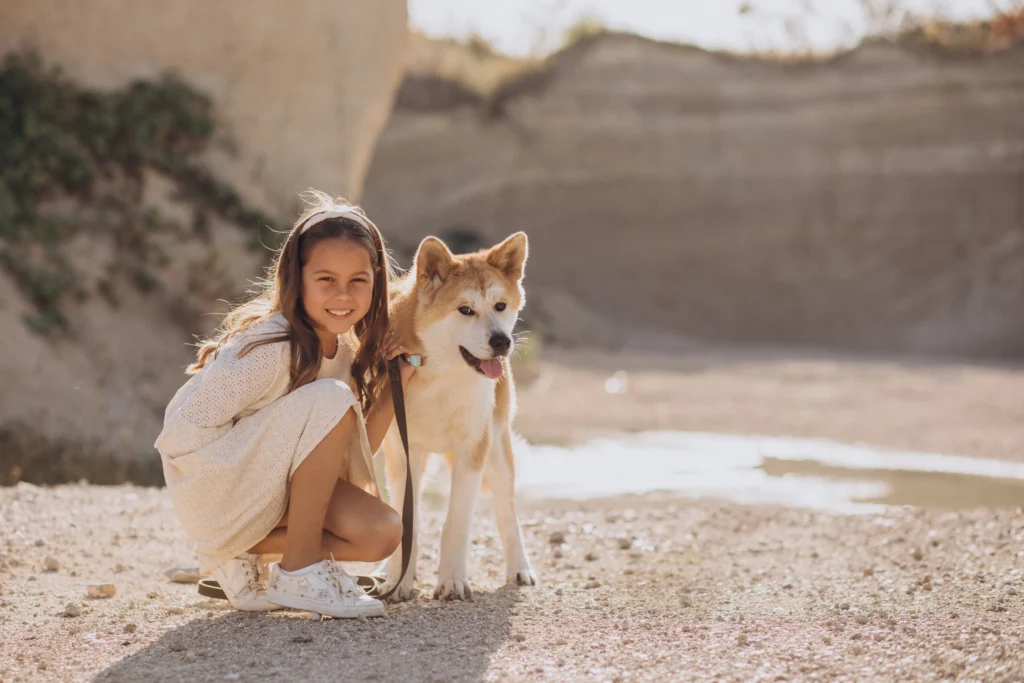
The Importance of Human-Dog Coexistence
While Virginia doesn’t have specific laws mandating dog ownership or interaction, promoting positive human-dog cohabitation benefits both parties:
- Enhanced Well-being: Dogs thrive on companionship and engagement. Responsible ownership provides them with love, security, and mental stimulation.
- Reduced Behavioral Issues: Well-socialized and trained dogs are less likely to exhibit behavioral problems, contributing to a more peaceful coexistence.
- Improved Quality of Life: Dogs bring joy, companionship, and even health benefits to their owners. Responsible cohabitation enriches the lives of both humans and dogs.
Virginia’s Dog-Friendly Housing Landscape
Finding pet-friendly housing is crucial for dog owners in Virginia. Here’s what to consider:
- Fair Housing Act: The Fair Housing Act prohibits discrimination based on disability, and reasonable accommodations for assistance animals are required.
- Local Restrictions: Some localities might have ordinances regulating breed restrictions or pet limits in rental properties. Always research local regulations before applying.
- Responsible Pet Ownership: Being a responsible pet owner, including proper training and waste management, strengthens your case for pet-friendly housing.
Public Access Laws and Dog-Friendly Businesses
While Virginia lacks a statewide law mandating dog access to public spaces, some areas promote human-dog cohabitation through:
- Dog Parks: Many localities offer designated dog parks where dogs can safely socialize and exercise off-leash.
- Dog-Friendly Businesses: Restaurants, shops, and other businesses might choose to be dog-friendly. Look for signage or inquire about their pet policies.
- Leash Laws: Most public spaces in Virginia require dogs to be on a leash. This ensures safety and responsible cohabitation for both humans and other animals.
Responsible Dog Ownership
Laws can provide a framework, but responsible ownership is key to building a positive human-dog bond:
- Proper Training: Invest in positive reinforcement training to create a well-behaved canine companion and enhance communication.
- Socialization: Expose your dog to different people, animals, and environments from a young age to promote confidence and adaptability.
- Exercise and Mental Stimulation: Provide your dog with adequate exercise and mental stimulation through walks, playtime, and enrichment activities.
Advocacy for Dog-Friendly Initiatives
Believe Virginia could benefit from more dog-friendly initiatives? Consider these avenues for advocacy:
- Research Successful Models: Explore dog-friendly policies in other states, such as leash-free zones or public transportation allowing dogs.
- Engage with Local Authorities: Reach out to your local government representatives to discuss the benefits of dog-friendly initiatives and advocate for their implementation.
- Support Dog-Friendly Businesses: Patronize businesses that welcome dogs, showing there’s a demand for dog-inclusive environments.
Other Relevant Dog Laws in Virginia
Canine Good Citizen (CGC) Programs and Legal Benefits
- Canine Good Citizen Programs: The American Kennel Club (AKC) offers Canine Good Citizen (CGC) programs, certifying well-mannered and trained dogs.Potential Benefits: While Virginia doesn’t have direct legal benefits for CGC certification, some dog daycare facilities, pet sitters, or even landlords might offer discounts or incentives for CGC-certified dogs.Focus on Training: Regardless of legal benefits, CGC programs provide valuable training opportunities, strengthening the human-dog bond and creating a more well-behaved companion.
Dog Insurance and Coverage Laws
- Dog Insurance Options: Dog insurance is not mandatory in Virginia, but it can offer financial protection for veterinary care, accidents, or liability.Coverage Variations: Policies vary, covering accidents, illnesses, surgeries, and even liability for third-party injuries caused by your dog. Research different plans to find one that suits your needs.Responsible Ownership: While insurance helps manage costs, responsible ownership practices like training and leash laws remain crucial for preventing accidents.
Laws Regarding Dogs in Hot Cars and Animal Endangerment in Virginia
- Animal Cruelty Laws: Virginia’s animal cruelty laws encompass leaving a dog unattended in a hot car where they could suffer heatstroke or death.Reporting Requirements: If you witness a dog in immediate danger in a hot car, prioritize the animal’s safety and contact animal control or law enforcement immediately.Responsible Pet Ownership: Never leave your dog unattended in a hot car, even for a short period. Cars heat up rapidly, and even mild temperatures can be dangerous for dogs.
Legal Aspects of Dog Parks and Shared Spaces
- Local Ordinances: Regulations regarding dog parks and shared spaces like trails or beaches are typically established by local municipalities.Leash Laws and Park Rules: Always adhere to leash laws and specific park rules regarding dog waste disposal, voice control, or designated off-leash areas.Responsible Use: Respect other park users and ensure your dog is well-behaved while utilizing shared spaces. 5. Dog-Related Property Damage and Homeowner’s Insurance in Virginia
- Homeowner’s Insurance: Most homeowner’s insurance policies cover liability for damage caused by your dog to another person’s property.Policy Review: Review your homeowner’s insurance policy to understand coverage details and exclusions related to dog ownership.Responsible Training: Proper training can help minimize the risk of your dog damaging property inside or outside your home.
Service and Working Dog Laws in Employment and Public Access
- Federal Laws: The Americans with Disabilities Act (ADA) protects the rights of individuals with disabilities to be accompanied by qualified service animals in public spaces.State Recognition: Virginia recognizes service animals as defined by the ADA.Public Access Rights: Service animals are permitted to accompany their handlers in most public spaces, including restaurants and stores. Emotional support animals (ESAs) are not covered by the ADA and public access rights vary by establishment.
Animal Welfare and Protection Laws Against Neglect and Abandonment
- Animal Cruelty Definitions: Virginia law defines animal cruelty as intentionally inflicting unnecessary pain, suffering, or death upon an animal. Neglect and abandonment fall under this definition.Reporting Requirements: If you suspect animal neglect or abandonment, you are legally obligated to report it to your local animal control agency or law enforcement.Your Role: Cooperate with authorities during investigations and provide any relevant information to help protect neglected or abandoned animals.
Understanding and complying with dog laws is crucial for both dog owners and society as a whole. Responsible pet ownership, from training and licensing to preventing cruelty and neglect, ensures the well-being of our furry friends. Following dog laws fosters a safer and more harmonious environment for everyone, strengthening the human-animal bond that enriches Virginia’s vibrant dog-loving community.
FAQs
Are there any restrictions on dog breeds in Virginia?
Virginia doesn’t have a statewide ban on any specific dog breeds. However, some localities might enforce breed restrictions within their jurisdictions. Always check with your local animal control or municipality to understand any breed-specific regulations in your area.
Can I take my dog swimming in public areas like lakes or beaches?
Regulations regarding dog access to bodies of water like lakes or beaches vary by location in Virginia. Some public beaches might have designated dog-friendly swimming areas during specific times. It’s crucial to research local ordinances or inquire with park authorities before allowing your dog to swim in public water areas.
What are the rules for traveling with my dog on airplanes or public transportation in Virginia?
Airlines and public transportation providers have their own regulations regarding pet travel. These regulations typically specify size restrictions, carrier requirements, and documentation needed for your dog to accompany you. Always check directly with the airline or transportation provider you plan to use for their specific pet travel policies.
I’m fostering a dog. Are there any legal requirements I need to be aware of?
If you’re fostering a dog through a rescue organization in Virginia, they will likely handle most of the legal aspects like licensing and microchipping. However, it’s important to understand your responsibilities as a foster parent outlined by the rescue organization, which might include adhering to specific veterinary care protocols or attending training sessions.
What should I do if I find a lost dog?
If you find a lost dog in Virginia, the first step is to try and locate the owner. Look for identification tags or a microchip. You can also contact your local animal control agency and report the lost dog. Additionally, consider posting information about the dog on social media and local lost and found pet forums to increase the chances of reuniting the dog with its owner.

